#French Open title 2021
Text
Schumacher's attitude a 'positive surprise', says WEC team-mate Lapierre
Sportscar racing veteran Nicolas Lapierre says he was "positively surprised" by Alpine team-mate Mick Schumachers attitude from the first day the German stepped into a World Endurance Championship hypercar.
Former Haas Formula 1 racer and current Mercedes reserve Schumacher showed a desire to adjust himself to the multi-driver format of sportscar racing instead of going out for individual glory, according to four-time Le Mans 24 Hours class winner Lapierre.
"When Mick came to his first test, it was in Jerez," said Schumacher’s Alpine teammate, Lapierre. "For me, when drivers come in from single-seaters, even more Formula 1, there are two options. Either he wants to be a real sportscar driver, share the car and work with his teammates, or he just wants to shine.
I was very positively surprised with Mick since day one. He really wanted to work as a team, and it suits him quite good, as well. And his pace was straight away very fast. This we knew [already]; we had no doubt about this. The only thing now is to have a little bit of traffic management and this kind of stuff, because this is very new [to him]."
Schumacher first got a chance to test the Alpine A424 LMDh last October and impressed the French manufacturer enough to earn a seat in its line-up for the 2024 season, joining team stalwarts Lapierre and Matthieu Vaxiviere aboard the #36 car.
Prior to his Hypercar move, the German driver spent two seasons competing in F1 with Haas from 2021-22, scoring a best finish of sixth on his second visit to the Red Bull Ring for the Austrian Grand Prix. He remains on Mercedes' books in a reserve role in 2024 and, if required, can be called in by the Brackley-based squad even on WEC race weekends.
Lapierre believes Schumacher's experience of working with the title-winning Mercedes F1 squad helps bring a new perspective to the Signatech-run Alpine team.
"He is bringing some good stuff from Formula 1 because he is working with one of the best teams on the Formula 1 grid," he said, "so this brings us some fresh ideas, some new feedback, which has also been very helpful in this project."
Schumacher spent the 2023 season on the sidelines after being dropped by Haas in 2023 in favour of countryman Nico Hulkenberg, electing not to compete in any other category during his first year out of F1. The German driver reiterated that he is looking for comeback opportunities in grand prix racing, but made it clear his current focus is on his Hypercar programme with Alpine.
"I'm here now. What the future holds is quite difficult to predict and foresee," said the 24-year-old. "Obviously my focus for now is WEC, but I would be lying if I would say that I don't have an eye on Formula 1. There are a lot of things happening right now. Who knows what opportunities are presented to myself in a couple of months' time. I will deal with that when it's time."
Schumacher, Lapierre and Vaxiviere finished twelfth overall in Saturday's opening round of WEC in Qatar, three laps down on the winning #6 Porsche Penske LMDh of Laurens Vanthoor, Kevin Estre and Andre Lotterer.
Alpine stable-mates Paul-Loup Chatin, Ferdinand Habsburg and Charles Milesi scored points in eighth place aboard the #5 Alpine A424 to lead a successful return to Hypercar for the French manufacturer.
"We had the pace to fight for the points, which was a bit unexpected, so we can be happy about it and proud of ourselves," said Schumacher. "It’s great the sister car managed to score."
#mick schumacher#f1#formula 1#wec#fic ref#fic ref 2024#not a race#2024 not a race#between bahrain and saudi arabia 2024#between qatar and imola 2024
22 notes
·
View notes
Text
WanderingBlindly Fanfic Masterlist:
Charles Leclerc/Max Verstappen
Excess (3.4k words, oneshot)
“You bite me,” He’s smiling now, like Max’s silence is as good as an oath. “And I’ll bite back. Deal?”
Max’s eyes flick to the battleground on Charles’s body.
“And this usually works for you?”
Without hesitation, Charles brings his blade to his own hand. He slices across his index finger, letting the blood slowly pool, before holding it under Max’s nose like a taunt. “I’m too good to pass up.”
Choking on Greatness (2.9k words, oneshot)
“I don’t think you’re born a winner, no.” Max whispers against his lips, breath like a hint of warmth. “You make yourself into one, or you quit.”
Can I?
Beggin' (1.7k words, oneshot)
“You are… gambling?” Charles slurred, tilting his head at Max’s proposal.
“Loser gets on his knees.” Max said, looking down at Charles in a way that he hoped screamed ‘and I know it’ll be you’'.
Or: Max and Charles make a drunken bet after Abu Dhabi 2021. One year, one realization, and one title later, Max isn’t where he thought he’d be.
I Know Your Name (But Not Who You Are) (7.6k words, oneshot)
If it’s been a decade since Max touched him, he fears it’s been longer since he’s seen him smile — their last weeks stained with downturned lips. Glassy eyes.
“Cheers, then. To freedom.”
“To finding you again.”
Cheating at Bingo and Other Christmas Traditions (12.4k words, oneshot)
"You know, there’s a very nice, very handsome young man in my neighborhood –” She starts back up, flagging down their waiter for another glass of wine.
“Absolutely not,” He cuts her off with a dismissive wave of the hand. “Next topic.”
“So you’re too good for him, is that it?” She sounds defensive, but her tone still has a mocking edge to it – emphasized by the quirk of her brows.
Hardly holding back a groan, Charles tries to think of a way out of this. She’s like a cat, batting at him until he gives up, rolls over, and plays dead. “That’s not – I’m just busy, and it’s –”
Or: Hallmark style fluff featuring an irritated Charles, a well-meaning Max, and the grandma that just wants them to kiss
Second Time's the Charm (7.3k words, oneshot)
“Remember when you said you’d set me up with someone? A few months ago, at George’s wedding?” Charles’s voice is still pinched, as if his throat is trying to suffocate him and put him out of his misery. “Maybe you could do that? If the offer is still standing.”
Simultaneously:
“How did you know you liked guys?” Max’s tone is flat, as it usually is when he tries to come off as entirely disinterested, but Lando knows his tricks. He shoots upright, looking down at Max with wide eyes before exclaiming, arguably, one of the worst possible responses:
“Oh my god, Max, are you fucking gay?”
Or: Charles and Max don't know how to date; Alex and Lando try their best to make it happen.
Eighteenth Summer (Do You Wish We'd Fall In Love?) (4.9k words, oneshot)
Max wanted to burn it into his memory, engrave bits and pieces of it into each of his senses. The way the blue sky reflected off of Charles’s massive sunglasses, the smell of the hot asphalt mixing with Charles’s cologne, the nearly hysterical sound of their laughter as their playlist finally shuffled to Mr. Brightside; everything felt so precious. So fleeting. Moments memorialized on the 101 northbound, flying out of their open windows and away from his greedy fingers.
All the Stars We Cannot See (9.8k words, oneshot)
Sitting on his roof, bathed in wintery silence, Max prayed to be rescued. To whom, he wasn’t sure. Maybe the force that branded his wrist, the universal power that decided who to tie him with forever. Perfectly. Something like fate.
Max prayed to fate, then.
“Am I interrupting something?” The man’s accent was French, his tone unusually assertive for a question of intrusion.
“It’s not my roof,” Max shrugged, hopping back onto the ledge.
Rules of Engagement (7.2k words, oneshot)
“Take me with you then!” Max felt his eyes go wide, his jaw literally dropping at the suggestion. “Tell them I’m like. Say I’m your fiancé, mate.”
The heat had melted Charles’s brain, Max decided, staring at him blankly.
“No.” He deadpanned.
“Mate it’s genius! You won’t have to do anything, just stand there. Let me handle it. Them. The women.”
Milk and Love (1.85k words, oneshot)
There’s someone else in his empty apartment, his presence both doubling and fading overnight. It’s next to him on the floor, an identical hand grazing his fingertips as it lays beside him – a perfect mirror. It’s in his kitchen, looking at the food his trainer brought him the night before. It’s in his bed at night, putting no weight on the mattress but forcing unimaginable pressure on his mind, in his eyes. Faster than him, quieter than him, beside him. Inside him. He can’t escape it, he realizes as he lays on the floor.
It lives where he lives.
Middle Child Syndrome (I've Been in Love with You for Ages) (3.6k words, 2/2 chapters)
After all, Charles being a middle child always made a lot of sense to Max.
Max’s unwillingness to deny Charles anything always made a little less sense to Max.
Standing on the third place podium beneath the Monegasque flag made a lot less sense to Max.
The fact that he wasn’t mad about it, a warm sense of acquiescence spurred by Charles’s smile, made it all click.
He was in love with Charles Leclerc, and he always had been.
Or: A small collection of memories leading up to a realization on the podium of Baku 2023.
#masterpost#lestappen#f1 fic#f1 fanfic#middle child syndrome#milk and love#rules of engagement#all the stars we cannot see#eighteenth summer#second time’s the charm#Cheating at Bingo and Other Christmas Traditions#i know your name (but not who you are)#Beggin'#Choking on Greatness#Excess
46 notes
·
View notes
Text
Social Class and Income Levels of IDV Characters
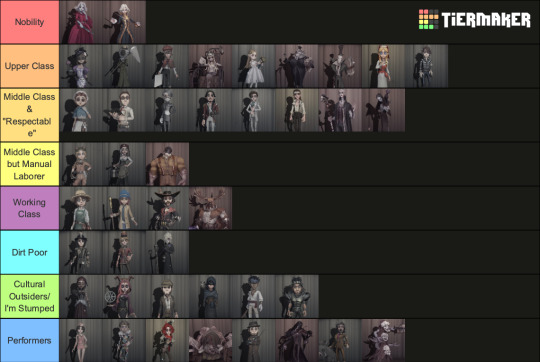
I’m back again with a long, intensive IDV post, this time regarding the quality of life most of Identity V’s characters would likely have led before coming to the manor. This list is not definitive and is based on a little guesswork in some areas, and also doesn’t include every single character, as I couldn’t find relevant information for every career, but I think provides an interesting look at character backgrounds, the sorts of resources they would have access to, and what life was like in the 1890s.
This post assumes that the vast majority of the characters live in the United Kingdom and that most of them were born there. As discussed in an earlier theory post, Oletus Manor is 100% in England and the DeRoss Couple and their daughter were English aristocrats. It also refers to fairly readily available information that can be found in various characters’ deduction systems, seasonal events, background and official videos, and birthday letters.
Lots- and I mean LOTS- of info below.
First, a few notes about the class system in the late Victorian United Kingdom:
- Class was highly stratified, and moving up the social ladder was extremely difficult.
- Class was not necessarily just tied to income. Upbringing, family background, etc were just as large a determinant, which is why you might have an impoverished aristocrat with tons of property but no income who would still be welcome in elite social circles, whereas an up-and coming business owner bringing in £3,000/year would be shunned. Class was who got invited over to dinner; class was whether or not you’d been educated, and if you had to work with your hands.
The Upper Class/Aristocracy/Nobility:
- The top of the class system under the royal family (boo). Men might hold political positions, but members of this class would not have careers, as such. These characters likely have a passive income from investments or land owned and generational wealth. hey own one or more homes and employ extensive live-in household staff, including maids, butlers, drivers, cooks, gardeners etc.They can travel widely and partake of various entertainments, having time to cultivate talents in the arts.
Mary: She is, or believes herself to be (??), Marie Antoinette, an Austrian princess and the Queen of France. Antoinette was infamous for her lavish lifestyle and voracious appetite for fashion.
Joseph: He is referred to as a Count, but French nobility does not actually use that exact title. It’s possible he is a Comte, which is the equivalent of an Earl/Count in England. Either way, this is a middle of the ranking noble title. In the 2021 Christmas Event, he mentions his family owning several manors, so the Desaulniers family has, or had, a considerable amount of property.
An interesting thing that makes me wonder if his family’s wealth is depleted is that he consistently dresses in extremely outdated clothing, but I believe that speaks more to his sentimental obsession with the past than anything else.
Chloe/Vera: The real Vera had the capital to open a store front to sell Chloe’s perfumes. There is no mention of either daughter working prior to this, and the family employs several maids. Presumably, Chloe’s perfumes were a good money maker, as the 1890s marked the “Golden Era” of perfume production and sales. It is unusual, but not impossible, that an upper-class woman would own a business.
Melly: A successful social climber who began as a maid before marrying her employer, who owned a manor. She is well educated, to the extent she has been invited to lecture at a college or university.
Edgar: Edgar does not paint to generate income. His family was able to afford a long-term art tutor for him, and he is not interested in the prize money offered by the manor because his family’s wealth is more than sufficient. He is squarely in the aristocrat category, and enjoyed a lifestyle most of the other characters could only have dreamed of, at least in a fiscal sense.
Galatea: Another individual who pursued art as a passion or hobby rather than actual trade.This would simply not be realistic for anyone outside the upper classes.
Memory/Alice DeRoss: Her father possessed the title of Baron. Her mother is depicted in TOR with an upper-class English accent. Her parents own Oletus manor, which they were able to purchase, and employ two known servants (Burke and Bane). Running such a large estate would require an army of maids, cooks, gardeners, etc, who are not directly mentioned but implied.
Keigan: In her background video, we see her family in very formal dress at a large, lavishly set dinner table. Her brother holds the position of judge at a major court, which brought with it a great deal of respect and import. The average clerk made very little money, but it’s implied she is acting as his unofficial assistant/helper due to sisterly obligation, and does not want for money.
Jack: a bit of conjecture, but Jack at least played at being an artist, and takes on the role of a gentleman. It does not appear he needed to work to support himself.
Annie: Her father is a painter of some note, and her mother was a noted society beauty who left her a considerable inheritance that her father and fiancé conspired to get their hands on.
Luca: A fallen aristocrat with a mother of noble birth. His interests include piano, books, and experiments, all of which point to a privileged upbringing. Only someone with resources could run experiments and futz about with specialized equipment, which is why so many scientists from past eras came from upper class or even noble backgrounds. His father, Herman, blew through their fortune, and after Luca’s incident with Alva, he would not be a socially accepted individual.
The “Educated” Middle Class:
-Individuals or households with an income up to around £1000/ year. The wives do not have to work, but see to the home (oversee staff) and partake in social obligations, plan parties, and help educate the children in the arts. Daughters may become teachers or governesses if they don’t marry or prior to marriage, or in wealthier families, not work at all. They own their home and have live-in staff, such a cook and maids. ( see model yearly budget for a man making £700/year here.) Vacations, domestic and abroad, and high-end entertainments are accessible. They have some time for hobbies, and probably play a musical instrument if also from a culturally upper-middle class family, such as a piano, violin, harpsichord, etc. Guitars, flutes etc would not be counted here, as they are more “common” instruments. These individuals might move in some of the same social circles as the aristocracy.
Emily: A well established Doctor working in a city hospital could expect to make up to £1000/ year, putting them at the upper end of the middle class. However, an independent Doctor would make much less, and in rural areas, would often be paid in food or services. Given Emily’s difficulties keeping her clinic open, she lingers in the border between being a member of the middle class “culturally”— we know she came from a middle class family and is educated— but she struggles with money and lacks for stability like some of the folks in the lower middle and many in the working classes. Despite a low income, her education would mean she’d be welcome in polite society.
Freddy: A top-payed Lawyer could make £1,200/ year, but Freddy is a bit of a failure. His actual financial status cannot be determined, but he is, like Emily, culturally middle class due to his education and white-collar job.
Aesop: Aesop Carl? relatively loaded, actually. The Victorian era was great for the funeral industry. The elaborate rituals surrounding mourning meant that those in adjacent careers were always busy, and it was fashionable to send off a loved one in great style. The lower classes imitated the lavish funerals of the wealthy, often bankrupting themselves in the process, because it was considered shameful to be unable to lay someone to rest properly, and reputation and respectability were of vital importance in the Victorian United Kingdom.
As with today, there was an outcry about the funerary industry driving up prices and taking advantage of grieving people to line their pockets even more.A nice funeral, modest but respectable, cost about £11, and embalming services were an additional £10. A funeral with all the bells and whistles would fall at £21. A skilled Embalmer is capable of tending to several corpses in a day. Even if Aesop and Jerry only handled 50 corpses a year, they’d be making £500. A modern mortician handles about 150 bodies a year, so that’s a cool £1500/year for them. This would mean a nice house with a garden, a maid, and a cook at the very least, presuming Jerry risked having staff around that could possibly catch him on his bullshit. (Though I guess he could just kill them too and replace them with someone who didn’t know better. Fucking Jerry). At least even if he was emotionally starved and groomed into becoming a murderer, he was still eating well, could have nice clothes, and take vacations?
Another downside though is that then as is often true now, people did not want to socialize with someone who worked closely with dead bodies, and funeral industry workers were often ostracized, making his position here a little tenuous.
His mother’s family appears to have been upper or middle class, as suggested by Aesop’s dance emote, in which he performs a pirouette. Ballet was an upper-class entertainment, and formal dance training would not be accessible to children of poorer families, and I doubt Jerry was enrolling him in a lot of extracurriculars, meaning he must have learned while still in his mother’s care.
Jose: A First Officer could make around £900/ year. His family was employed by the Queen, and once had a stellar reputation. Although sailors worked with their hands, a high-ranked officer on a ship was seen as fairly respectable.
Orpheus: Some conjecture here. Orpheus is, like Melly, someone who successfully moved up the social ladder, first being adopted by the aristocratic DeRoss couple and then making a name for himself as a novelist. His Survivor version is well-dressed in neat white clothes that would require maintenance and be antithetical to manual work that would dirty them.
Luchino: As a professor, he is educated and respectable, even if his methods are unconventional and his manner of dress hardly appropriate for the classroom.
Alva: He was a student together with Luca’s father, Herman, at an institute of higher education, meaning he is most likely from a family who could afford the expense of educating him.
EDIT: @ivy0309 pointed out that in the Mandarin version of Alva’s first deduction, the language states he comes from an impoverished place, meaning he was probably granted a scholarship and is another case of a successful social climber.
Ann: Ann’s deductions mention she wore exquisite and ornate mourning clothes after the deaths of her parents, suggesting her family had the money for funerals with pomp. She is also left land and at least two houses after her father’s passing.
Manually Laboring Middle Class:
Income wise these careers are middle class, being able to net £1000/year, but there was a difference between enjoying a good quality of life and being socially accepted. Iif you worked with your hands, no matter how skilled you were, you were still a laborer and seen as lacking in culture.
Tracy: A clockmaker made up to £400/year, which jumped to £840/ year if they also worked on watches as well. Her father, Mark, would have netted them enough money to fall into the working middle class, and this is before Tracy’s mechanical genius became evident. If Tracy’s life had gone differently, it is possible she could have become what was known as a Master Mechanic, a skilled worker who could earn £1000/ year, guaranteeing a high standard of living.
Demi: As a Barmaid alone, Demi would make about £150/ year, which would be difficult to survive on; however, she and her brother own their establishment. Their bar could make about £1000/ year, giving them a comfortable life in terms of amenities, but Barmaids were not respected and often suspected of being easy; many young women in major cities who worked in shops and restaurants took up sex work to supplement their meager incomes.
Leo: At one point appears to have owned two factories, both his initial textile factory and the doomed arms factory.
More or Less Stable Working Class
Emma: A gardener would make, at a maximum, £400/ year, and a young gardener like Emma would certainly not be able to earn that much. In her previous life as Lisa Beck before Leo made a bad investment, she was likely very comfortable, as Leo did own a presumably successful textile factory. She may be especially nostalgic for her childhood with her father because her situation changed drastically very rapidly, going from living in a pleasant environment with two parents, plenty of toys, good food and clothes/household with a steady income, to being placed in a Victorian orphanage and eventually becoming a manual laborer.
Helena: She wishes to attend college, but cannot afford to do so. We aren't exactly sure what her father does for work, but he is likely in the working class, as many middle class families could reasonably afford to educate at least one of their children, and Helena is, to our knowledge, an only child. They seem to have enough money to provide her with certain accommodations, like spectacles and her cane, though these may have been gifts from Sullivan.
Kevin: the lifestyle itself would be rough, but he could make around $480/year (sorry for the currency change, but he lived and worked in the USA, and England did not have cowboys).
Bane: A game keeper often had a relatively low income and would by that definition actually fall into the below category, but housing was almost always provided to men who held this job, taking a stressor off his plate. Steady employment/staying at a position for several years was also common, providing general stability.
Working Class and Extremely Poor:
-Families or households often struggling to scrape by on under or around £300/ year, sometimes with individuals making as little as £25/ year. A frugal family at the top end of this budget would overlap with lower middle class and would be able to employ a maid, putting appearances first and sacrificing other luxuries. There is less money for entertainment, and almost all of the income goes to food and housing. Little or no savings. The vast majority of the population falls in this category because things never change, with only 7.7% of workers making £340 or above, and 42.9% £192 or under.
Norton: Coal miners earned around £260/ year. Norton was looking for gold and gems, but it’s safe to assume his standard of living would have been about the same as a coal minder. Compared to some jobs, this wage may have seemed decent, but mining was brutal and incredibly dangerous. Miners typically lived in housing camps operated by mine owners, and had to buy their daily essentials from in-camp stores and commissaries.
Victor: I had to conjecture a little here, but senior postal service employees were making around £200-300/ year, and newer employees a starting annual wage of £90 so we can guess Victor falls around here as well. We also do not know about his family’s class background.
Andrew: Andrew probably wishes he really was a Train Conductor. In that job, he could have made £900/ year, granting him membership the middle class. Being a Grave Keeper or Grave Digger was an awful job, physically demanding and badly compensated. Cemeteries often stank of rotting bodies, and Grave Diggers had a low social standing because they worked so closely with corpses. I could not find concrete information about how much he would have made, but it would definitely fall below the £300/year mark that is the ceiling for entry into the lower middle class, given that the other Survivors with physical/ unskilled labor jobs seem to peak at the £200ish range.
Worth noting though not necessarily tied to class is the common misconception that Andrew is illiterate, which he certainly isn’t. His dedications include a diary entry he wrote in which he tries to justify to himself his bodysnatching activities, and he also received letters from Percy’s assistant. He might have a little trouble with small print due to his bad eyesight, but he can absolutely read and write. Most people, even the poorer classes, were at least somewhat literate in this period in the United Kingdom.
Outsiders/I Have No Idea
-These are characters with either extremely vague and mysterious pasts or who have extremely unconventional professions.
Patricia: A Voodoo practitioner, it is unclear if she performs the work of a Voodoo priestess, which could be lucrative. Marie Laveau, on whom she is allegedly loosely based, was very financial successful, but to be honest, I think the IDV writers have a very shaky grasp on actual Voodoo practices and beliefs (as do most folks probably who have no idea that a lot of practitioners are also Catholic. It's a syncretic religion so yes, Patricia’s nun costume actually makes some sense.)
Fiona: It is openly stated she comes from an unknown class. There aren’t really historical precedents I could find in my research for occultists of her stripe earning an income, as there’s no indication she goes around giving exhibitions or overseeing seaances. Many Victorians dabbled in the arcane as a hobby, but those who were able to fully devote themselves to their studies tended to come from very comfortable backgrounds, such as Helena Blavatsky and Aleister Crowley.
Kreacher: He is a thief. Nothing else to say.
Eli: Another character with an ambiguous background. We have little information about his family life, but he is considered in his write-up by the organizers of the manor games to be unemployed.
EDIT: @ivy0309 informed me Eli is listed as coming from a middle class background in the official setting book.
Ganji: He is likely extremely poor. I could not find anywhere what a professional athlete might have been paid, but we do at least know he cannot afford travel home to India.
William: He is presumably from a middle class family, given that he attended university. As with Andrew above, I have a seen of lot people claiming William is less intelligent/educated than he is, when he’s actually at least one of the most educated characters in the game. He may have made a poor decision drinking the poisoned wine and come off as a muscle head, but he is far from a himbo. I don’t know what his current social class could be considered, as professional athletes in the Victorian era were not the same was they are now, but William does appear based on his clothes to be a rugby player more or less full time?
Performers/Entertainers
-This is another tricky group to get a handle on, because the role of the entertainer in society meant that one could be exalted and idolized while also not being welcome in polite society. I cannot speak to actual income amounts for these characters, but can provide a few general notes of interest. Also worth noting is that a top-billed musician like Antonio would be treated very differently than the Hullabaloo performers, who were certainly seen as impolite and indecent.
Margaretha/Natalie: Female performers were often characterized as promiscuous and sexually available, and therefore sneered at. Margie is wearing the costume of an exotic dancer (for those who may not be aware, this doesn't meant actually foreign or exotic, it explicitly means a dance intended to arouse or excite). She is not doing well fiscally after Sergei’s death, and is implied by the description of her animal tamer costume to dance/busk for tips.
Her uncle and aunt who raised her lived in Lakeside, and Natalie is described as wearing a cheap cotton dress in a photograph of her living under their care. Her background then would likely fall under manually laboring/working class.
Mike: Mike is one of the circus’ most popular performers, so he makes more than Margaretha, but that's all I can guess.
Joker: He is less popular than Mike and Sergei, but is allowed his own tent because either he has enough status in the Hullabaloo or nobody wants to room with him.
Violetta: Her family abandoned her, and she was seen as an asset by Max. Likely has little to no money of her own.
Servais: He at least considers himself middle class and respectable, and his dress does suggest he is financially solvent.
Antonio: A musician welcomed at court who played for upper-class audiences. Antonio was raised to be a money-maker by a stern father and did receive royal patronage, but based on his personality traits I am willing to bet he has poor money management skills. His real-life inspiration, Niccolo Paganini, died in debt.
Murro: Treated as a possession by Bernard and then living on the run, it's hard to imagine he had any way of earning money after fleeing the circus, nor the necessary knowledge to exist within society.
Willis Brothers: I believe their situation would be similar to Violetta’s. Disabled sideshow performers could occasionally have quite lucrative careers, but this was rare.
This is far from comprehensive, but thank you so much for taking the time to read this far! If you have any questions or wish to discuss anything here, please feel free to talk to me!
A great resource for approximating the income ranges used above is this database, this is invaluable for looking at things like average wages, housing costs, price of goods in different countries (mostly the US, UK, and Western Europe) across decades and eras.
#identity v#idv#idv lore#idv speculation#William Ellis#Fiona Gilman#Edgar Valden#Melly Plinius#Norton Campbell#Servais LeRoy#Patricia Dorval#Annie Lester#Aesop Carl#Victor Grantz#Ganji Gupta#Eli Clark#Kreacher Pierson#Alva Lorenz#Luca Balsa#Emma Woods#Emily Dyer#Joseph Desaulnier#Vera Nair#Galatea Claude#Alice DeRoss#IDV Keigan#IDV Jack#Freddy Riley#Jose Baden#IDV Orpheus
353 notes
·
View notes
Text
Mark Rowley and Arnas Fedaravicius talk about Ewan Mitchell - Everlasting Adventure Online 2 (Feb 2021)
Before reading: I translated the following excerpts since they were published in French on frconventions.com. Therefore, what the actors said about Ewan is not a faithful retranscription of what they declared in the interview but it remains accurate.
1/ Creating a boysband
Q: If you could create a boys band, what would be its name?
The question really inspires Mark Rowley and Arnas Fedaravicius. Arnas finds a title for their future hit song: ‘One More Oath’ and of course both actors quickly think of a name for their imaginary boys band. Along with Alexander Dreymon they would form the “Yes Lords” and naturally Ewan Mitchell would join them ! Another song would be ‘Bebbanburg Blues’ and it would be Alexander’s solo song. They also add “Ewan would have an epic bass solo, and we would sing on a boat.”
(wait, wait, wait … Ewan plays bass ?! *faints*)
2/ Kiss, Marry, Kill
Arnas and Mark are playing “Kiss, Marry, Kill”. They are told to choose between Ewan Mitchell, Alexander Dreymon and Eva Birthistle. Arnas declares that the choice is very tough. Mark is the first to answer and he says that he would marry Eva and Arnas agrees. Indeed, she’s very strong and open-minded enough to accept that the world is changing and that she must adapt. Mark then says : “A lot of people in the chat would love to kiss Alexander. We have to do it for them. And we cannot marry him cause everyone who marries him ultimately dies”. Arnas finally ends the game by saying they have no choice but to kill Ewan and he apologises. “It’s such a dark game! I forgot how far it could go”
(Poor Ewan. Don’t worry, I’m sure many people would have made a different choice.)
81 notes
·
View notes
Text

A tradition with the French Comp is to interview the winner of every edition. Since I won Best Game, I got to partake in this tradition, and answer a bunch of fun questions about my entry and my creation process.
The interview is now available on the French IF community website:
Since it is in French, here is the translation, under the cut. Spoilers ahead.
Note: the French article was over 2k words...
Interview with manonamora, winner of the contest 2023
This year, manonamora won the competition, with her entry, DOL-OS. We spoke with her to learn more about her creative process and her future projects!
Can you introduce yourself in a few words? How did you discover interactive fiction?
My name is Manon, a netizen under the pseudo manonamora for years.
I fell into the "cauldron" of interactive fiction in the spring of 2021, when a close friend had sent me the link to the game A Tale of Crowns. I liked this type of game, and it made me rediscover the pleasure of writing, so I stayed. It’s really nice in this pot, we’re having fun!
People appreciated the different levels of depth of your participation and the care taken at the interface, in particular. How long did it take you to design it?
It was a bit of a sprint… 😅
I think I started scribbling my ideas on pages about a month before the entry deadline.
I wanted to try to incorporate both themes (archives and trahison) into the game, just for fun. So I took the easiest path and went on to create an archive of different documents, all linked by the theme of betrayal. Of my list of documents that I wanted to include, I was only able to include half at the end (the other remained in draft, due to lack of time).
The idea of using a computer as a framework and interface for the game came up fairly quickly and organically, since the archive alone was not enough, to my liking. This led to the possibility of adding puzzles (something I didn’t necessarily do in my other games) that I could also link to the theme (like the hangman’s solution or opening Théophile’s account) and creating animated and pixelated visuals (like a fake virus downloaded). I even made a list of puzzles and minigames to add so that the computer looks like a real computer (that’s why there is a sudoku in the "games" folder, or the keypad to open one of the programs).
From there, I thought I would just do two blocks of archives: one on the guest’s account, where some of the documents would look corrupt, and another on Theophilus' account, where those missing documents would be. But by writing certain documents, such as the note in the trash and the journal entries (which were not separated from the archive initially), I had fun looking for the links between all the different parts and thinking more about the universe in which this old computer was. That’s how the Jupiter-Broker project became an artificial intelligence project, more than a virus.
What are the things that inspired you?
Other than a title I had written down in my drafts, I’m not sure which source inspired me to choose this genre or framework or use of the theme in this way. I’ve been a big fan of science fiction for as long as I can remember (I had swallowed Asimov in middle school/junior high… and now I’m stuck with the anthologies of short stories) and video games in general (especially the history and universe of these games). Everything that has to do with robots, the advancement of technology, futuristic stories, and human dilemmas that have to do with these first points, I’m passionate about it! I wouldn’t be surprised if, somewhere in my brain, I could pick up stuff from Portal or System Shock or Fallout or Asimov’s Robot Cycle, or even WALL-E and Alien, without really realizing it.
In my notes, the only concrete thing I could find was one of the entries of the Intertact-IF 2022 game jam: Logical Choices, especially in terms of its simplicity, and, finally, the newspaper too.
For the visual, I wanted from the start to have something simple, with the look of old computer in black and green, like my grandmother’s minitel. I really tried to search for minitel page images (I even found a page editor!). On the other hand, trying to code everything, it didn’t really go well with Twine, especially the animation of the blocks that appear one after the other. I was quickly tempted to create the game in minitel pages, but well, I only had 2 weeks left… It was a bit short to learn a new system. So I just took pictures of old computer screens.
Are there any secrets the players might have missed?
There are several little secrets in the game.
The first category concerns the names in the game: the title, «DOL-OS», is based on the Greek deity of the same name, Dolos, personifying treachery (and bam, the theme of the contest; and it sounded good as operating system name). The AI is named Janus, the deity with two faces. The program of Theodore’s diary, in which he was summoned by his organization to write his days, is named «Ind.ic», coming from the French word indic, a person who informs the police.
Something a little more fuzzy can be found in the writer’s draft, which is related to one of my other games, Exquisite Cadaver, where the player plays this writer, who has not been able to write for months. This is not the first time I have included a link to this game in my projects, like the "cocktail" Renaud’s Nightmare in The Thick Table Tavern.
Where do you get your ideas, generally speaking?
A bit everywhere. Sometimes, it comes organically enough looking at the theme or the constraints of a game jam (La Petite Mort, Goncharov Escapes!). Sometimes, it’s just the desire to push a kind of puzzle or a type of gameplay into a project (Exquisite Cadaver, well it was also the theme). Sometimes it’s typing “trope [genre]” in Google and taking the first thing that comes out (SPS Iron Hammer). Otherwise I have some ideas that have been inspired by books (P-RIX – SPACE TRUCKER, by Stanisław Lem’s Tales of Pirx the Pilot) or films (Meeting the Parents, inspired by Meet the Parents). Other projects or ideas for future projects are inspired by books on my nightstand, or conversations with loved ones, or even just random thoughts that come and go.
I’m not trying too hard to think. If it doesn’t inspire me or amuse me, I’ll move on. Creating interactive fiction is all about fun. And I already have a super long list of ideas I want to do…
You only use Twine. Is there a particular reason? Do you intend to try other creative systems in the future? Maybe some of the other entries gave you some ideas?
For the moment, yes. Twine remains my favourite, having been the first program I hooked up with when I started creating interactive games. The software was easy to navigate and rather playful to use (Harlowe has extra help to code in the program) and the program is open source. It was really important for me, who didn’t have any code or programming knowledge that went any further than that techno hour to the colleague where a substitute had taught us to create a basic HTML page. With Twine, it stuck from the start.
And then, personally, I love that the customisation aspect can be pushed as much. You can do hypertext or multi-choice games, dungeons, RPGs, etc. I created a cocktail bar for my participation in the IFComp last year, and there I did a puzzle. I have a friend who has recreated Minesweeper and another who has made Snake with his sauce. Almost anything is possible with Twine!
When I get tired of Twine, I think I’ll try other systems, especially those to create parsers (because making one with Twine is a bit of a mess… /did and done that). And then also test programs made in France. Already during the ECTOCOMP and the Feldo streams of the games of the old competitions, Donjon had intrigued me a lot. And also ink, to make stories that extend to infinity (it takes too much tinkering with Twine for it to work...).
But my Twine fling isn’t over yet. I’ve only been playing with the interface since last summer, and I don’t feel like I’ve discovered the bottom of the iceberg yet. There are still a lot of things I haven’t tested yet, whether it’s in different formats or gameplay. I would like to do some kind of escape room or RPG in the future. I still want to push the envelope a little further…
You participated in the IFComp (the largest English-language event) before participating in our contest. Are there any differences that particularly struck you between the two?
By missing the inclusion of a theme (which the IFComp does not), I think the biggest difference between the two contests is the attitude of the participants and the players. The atmosphere of the French competition is really relaxed and I noticed a lot of support in the Discord. Or even have a person stream all the games on Twitch (it’s very convenient for me who is a loser in parsers…). It’s really positive!
On the other side, there is the IFComp which is really considered the event of the year, where the authors exhibit their best creations, without any real constraints, some having been in development secretly for years. The atmosphere is more professional and harsh towards its participants. There is really a lot of expectation from the entire interactive fiction community. It’s supposed to be the crème of the crop in interactive fiction.
After that, even if the atmosphere of the French-language competition is more chill, I found the level of entries much more uniform in terms of quality. While the IFComp will often have very poor or even zero entries (the bottom of the ranking having an average of below 2.5 out of 10), the overall French competition had a very high level (a sentiment shared by one of the critics on intfiction.org). The attention to each game had a lot of merit, especially as regards writing.
Another thing that struck me as well was the diversity between the systems and formats used—it is possible that the competition, having three times fewer bids than the IFComp, may have influenced my perspective on the subject. But between the French programs (Moiki, and Donjon), the more popular ones (Twine, Inform, ink), or even made from scratch (like the participations of AZ and Narkhos), there were many choices and important differences between uses. It was a fascinating experience that really made me want to try something new.
Finally, I had a very different attitude towards the two competitions. After taking a little slap during the IFComp (arriving in the middle of the stack and having received fair but also severe feedback, read more here), the expectation I had with myself with the contest was less trying to get to a certain position in the standings, but no more fun creating something different. It was much easier to look a little more… healthy competition, with all the lessons learned during the IFComp and new knowledge and experiences between the two competitions.
And on top of that, you regularly participate in game jams like ECTOCOMP or Partim 500, you co-organize the SeedComp! , and you’re going to participate in the Spring Thing. Is there a secret to such productivity?
Delusion that all this is doable in the allotted time. Free time. And spite. But especially the first point. 😂

(this was the gif that came into my mind when I wrote my answer, not part of the actual interview)
Frankly, I’m not helping my cause either. As soon as I find a project that is a bit interesting, I can get all in on it quite quickly and put all my energy and free time into it. It’s not recommended, actually. Even if all these participations taught me a lot of things (and especially to learn quickly), it tires a lot in the end... I am often emptied at the end of each new jam/comp.
It’s probably a little psychological, too. The will to create a lot to leave a trace behind me, a trace that will represent everything I could accomplish, everything I could be able to do or try to do. The desire to prove to others and especially to myself that I can create stuff that I as a child could not have imagined; especially since before 2021, I really didn’t have any programming knowledge… Willingness, or perhaps duty, to prove that I can solve a challenge in a short time (for example: in 4 hours for ECTOCOMP, or two quiet afternoons for Partim 500), or with significant constraints (One-Button and Two-Buttons jams), or just because there’s a piece of spaghetti code that taunts me about unravelling it.
Anyway...
Do you have other projects underway or coming soon? Perhaps you plan to participate in the contest next year?
Of what happens soon, hopefully, The Roads not Taken, a parser made with Twine, will be finished in time for the Spring Thing. I really want to talk about it, but at the same time, it’s more fun if it’s still a little secret…
[note: it is now out!]
Otherwise… Too many projects in progress. Between the demos not yet completed, the translations of my old games finished, the organization of game jams (SeedComp! will not be the only one this year…), and the hope of participating in the next IF competitions, I have given myself a lot of work (too much) to do.
Ha ha ha…
Thank you for answering these questions! Congratulations again, good luck and don’t forget to take care of yourself!
14 notes
·
View notes
Text

𝚃𝙰𝚂𝙺 𝟸𝟻; 𝙽𝙴𝚇𝚃 𝙶𝙴𝙽.
gwen lightfoot.
once the baby of the lightfoot clan, gwen’s title has been given to her brother gabe and honestly ? she’s not happy about it. if eowyn is mostly barley then gwen and her sister took on many traits of their mother. gwen the most. she’s so much like penny that the two often buttheads. the only thing she didn’t get from her mom was her small stature. she was born a force. gwen is a diva and unapologetically mean. she may be difficult but boy can she sing !
inspired by : leighton murray ( sex lives of college girls ) , sharpay evans ( high school musical ) , rachel berry ( glee ), jackie burkhart ( that 70′s show ) , i’m so hot by chrissy chlapecka , quinn fabray ( glee ) , monet de haan ( gossip girl 2021 ) , i don’t want it at all by kim petras , chanel oberlin ( scream queens ) , this is why we can’t have nice things by taylor swift
𝙶𝙴𝙽𝙴𝚁𝙰𝙻
birth name. guinevere quinn lightfoot
nicknames. gwen,
date of birth. july 25
age. twenty-one
gender. cis female.
pronouns. she/her.
species. human
powers. n/a
sexuality. lesbian.
place of birth. manhattan, new york.
current residence. equal time in manhattan and elias.
occupation. musical theatre major.
𝙰𝙿𝙿𝙴𝙰𝚁𝙰𝙽𝙲𝙴
height. 5'9"
hair colour/style. blonde, naturally straight.
eye colour. blue.
piercings. ears.
tattoos. none at the moment.
notable markings. n/a.
glasses/contacts ? n/a.
faceclaim. renee rapp
voiceclaim. renee rapp ( singing renee as well ) ( x / x )
𝙷𝙴𝙰𝙻𝚃𝙷
physical ailments. none.
allergies. none.
sleeping habits. do not wake her before her alarms.
exercise habits. dance mostly and running.
dominant hand. right.
drugs / smoke / alcohol ? no / no / no all these are bad for your vocal chords omg.
𝙿𝙴𝚁𝚂𝙾𝙽𝙰𝙻𝙸𝚃𝚈
positive traits. talented, perfectionist, reliable, creative
negative traits. bossy, know it all, unpleasant, dramatic, reactive
usual mood. unamused.
likes. broadway, designer clothes, the color pink, cold brew coffees on a fall morning, a chic little black dress, the lights of a stage casting down on you, applause, french cafes, glitter pens, hugs from her father
dislikes. being compared to her sisters ( eowyn mostly ), rain, being told what to do, lea michele, the color green, being touched by strangers, chewing with your mouth open, people who try to do duets with her when clearly this is a solo only territory thank you !!
bad habits. talking over people and interrupting them.
𝚁𝙴𝙻𝙰𝚃𝙸𝙾𝙽𝚂𝙷𝙸𝙿𝚂
mother. penelope hainline
father. barley lightfoot
siblings. eowyn, kinsley & gabe lightfoot
children. none.
birth order. third of four.
significant other. could be you who’s to say
closest friends. august o’neil, lightfoot cousins this could be you !
𝚃𝙴𝚂𝚃𝚂
zodiac sign. leo
mbti. estj
temperament. choleric
hogwarts house. slytherin.
moral alignment. chaotic neutral.
𝚂𝙺𝙸𝙻𝙻𝚂 & 𝚂𝚃𝙰𝚃𝚂
languages spoken. english & french
drive ? yes.
jump start a car ? no.
change a flat tire ? yeah but don’t ask her to.
ride a bicycle ? yes.
swim ? yes.
play an instrument ? yes.
play chess ? no.
braid hair ? yes.
tie a tie ? yes.
pick a lock ? no.
sew ? yes.
compassion. 4/10.
empathy. 4/10.
creativity. 10/10.
mental flexibility. 9/10.
passion. 10/10.
luck. 9/10.
motivation. 10/10.
education. 10/10.
intelligence. 9/10.
charisma. 7/10.
reflexes. 9/10.
willpower. 6/10.
stamina. 9/10.
physical strength. 6/10.
battle skill. 5/10.
initiative. 10/10.
restraint. 7/10.
strategy. 10/10.
team work. 0/10.
( pinterest, her tag, playlist. )
7 notes
·
View notes
Text
D.U.D.E Bios: Edward Moore / Eddie Kingston
The Mad King of Yonkers Eddie Kingston (As of September 1st 2021)
*All information only accurate in D.U.D.E*
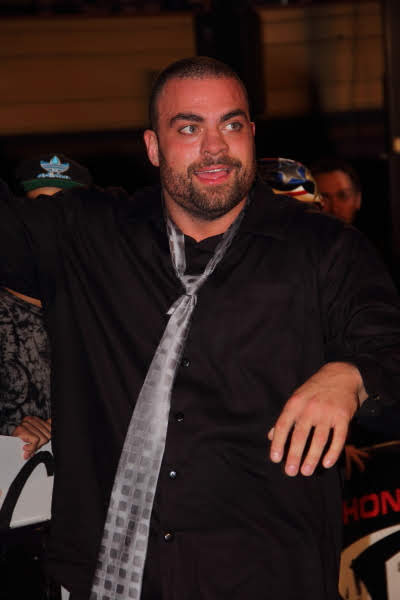

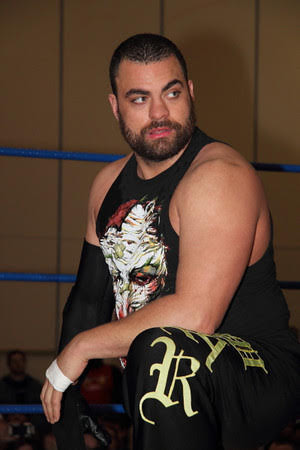
The 'last of a dying breed', The Mad King himself, Eddie Kingston is one of, if not the toughest wrestler in the business, but when put next to his wife, he happily accepts being the second most powerful, but only within their family. Eddie knows how to masterfully create a promo, but his bite is way deadlier than his bark.
"Talk is cheap, Partna."
Name
Full Legal Name: Edward Moore
First Name: Edward
Meaning: Means 'Rich guard', derived from the Old English elements 'ead' 'wealth, fortune' and 'weard' 'guard'
Pronunciation: EHD-ward
Origin: English, Polish
Middle Name: N/A
Pronunciation: N/A
Origin: N/A
Surname: Moore
Meaning: The surname Moore has 3 different possible meanings: 1- Originally indicated a person who lived on a moor, from Middle English 'mor' meaning 'open land, bog'. 2- Derived from the given name 'Maurus', which is a Latin name meaning 'North African, Moorish'. 3- Nickname for a person of dark complexion, from Old French 'more', Latin 'Maurus', meaning 'Moorish'
Pronunciation: MUWR
Origin: English
Alias: War King, The King of Diamonds, The Mad King, The Last of a Dying Breed. Eddie Kingston. Dragon Prince
Reason: Self-Given Monikers. Ring Name. 'Dragon' style in C.R.C is equivalent to highflyers (e.g. Jeff Hardy), 'Dragon Prince' means Eddie is the son (or in Eddie's case, son-in-law) of 'Dragon King' Hywel Rhydderch (Kirby's father)
Nicknames: Ed, Eddie, King, Kingy, Doughboy, Papi, Pá, A stór, Mr Loverman
Titles: Mr
Characteristics
Age: 39
Gender: Male. He/Him Pronouns
Race: Human
Nationality: American. Irish-American & Puerto Rican Mix.
Ethnicity: Mixed. White & Hispanic / Latino
Birth Date: December 12th 1981
Symbols: Bandanas, Gloves, Rosaries, Cigarettes, Cigarette Smoke
Sexuality: Straight
Religion: Irish Catholic / Catholic
Native Language: English
Spoken Languages: English, Spanish
Relationship Status: Married
Astrological Sign: Sagittarius
Theme Song: Miscellaneous Songs - Miscellaneous Artists (2002-2019), 'Cold World' - 'AEW' (2020-)
Voice Actor: Edward Moore / Eddie Kingston (/ N/A?)
Geographical Characteristics
Birthplace: University Ave, The Bronx, New York, USA
Current Location: On the road / Yonkers, New York, USA
Hometown: Yonkers, New York, USA
Appearance
Height: 6'1" / 185 cm
Weight: 240 lbs / 109 kg
Eye Colour: Green
Hair Colour: Black (Greying)
Hair Dye: None
Body Hair: More visible on his chest than his arms and legs
Facial Hair: Full beard, usually short
Tattoos: None
Piercings: Ear Lobe (both)
Scars: Many small, unnoticeable, scars from matches
Health and Fitness
Allergies: None
Alcoholic, Smoker, Drug User: Occasional Drinker, Smoker
Illnesses/Disorders: None Diagnosed
Medications: None
Any Specific Diet: None
Relationships
Allies: The Rhydderch Family, Jon Moxley, Homicide (Nelson Erazo)
Enemies: The Lucifarians
Friends: Ethan Page, Jon Moxley, Nelson Erazo (Homicide), Bryce Remsburg, Renee Paquette, Angel Ortiz, Santana, Jack Marciano
Colleagues: The AEW locker rooms / Too many to list
Rivals: Too many to list
Closest Confidant: Kirby Moore
Mentor: None
Significant Other: Kirby Moore (30, Wife, Née Rhydderch)
Previous Partners: None of note
Parents: Earl Moore (68, Father), Ruth Moore (65, Mother, Née Peña)
Parents-In-Law: Hywel Rhydderch (60, Father-In-Law), Oda Rhydderch (60, Mother-In-Law, Née Gilchrist)
Siblings: Eric Moore (35, Brother)
Siblings-In-Law: Angélica Moore (32, Eric's Wife, Née Orellana)
Nieces & Nephews: Evan Moore (1, Nephew)
Children: Emyr Moore (New-Born, Son), Ethan Moore (New-Born, Son)
Children-In-Law: None
Grandkids: None
Great Grandkids: None
Wrestling
Billed From: Yonkers, New York
Trainer: CHIKARA Wrestle Factory, Mike Quackenbush, Reckless Youth
Managers: Kirby Kingston
Wrestlers Managed: Kirby Kingston
Debut: 2002
Debut Match: The Wild Cards (Eddie Kingston & BlackJack Marciano) VS Melvin Snodgrass & Lester Crabtree. The Wild Cards won via pinfall
Retired: N/A
Retirement Match: N/A
Wrestling Style: Grappler / Street Fighter
Stables: Second Gear Crew, BLK OUT, The OGz, The Unwanted, The Rhydderch Clan (2021-)
Teams: The Wild Cards (Eddie Kingston & BlackJack Marciano), The Mad Royals (Eddie Kingston & Kirby Kingston)
Regular Moves: Inverted Cloverleaf, Lariat, Multiple Knife-Edge Chops to a Cornered Opponent, Belly-To-Back Suplex, Belly-To-Belly Suplex, Capture Suplex, Head-And-Arm Suplex, Saito Suplex, Tiger Suplex, Running Arched Big Boot (Sometimes to a Cornered Opponent), Side Slam Backbreaker, Ura-nage
Finishers: American D (Sliding Forearm Smash to the Back of the Opponent's Head), Backfist to the Future (Spinning Backfist), BLKOUT Lariat (High-Impact Short-Range Lariat), Royal Flush (Spinning DDT), Sliding D (Sliding Forearm Smash)
Refers To Fans As: The Fans
Extras
Trivia: Nothing of Note
#D.U.D.E#eddie kingston#Moore#Kingston#AEW#C.R.C Wrestling Promotion#C.R.C Wrestling Family#Dragon Prince Eddie Kingston#Dragon Style C.R.C#Rhydderch Clan
8 notes
·
View notes
Text
A major political trial is underway in Moscow. The defendant this time is Oleg Orlov, a well-known dissident, human rights advocate, and co-founder of Memorial, a key civil liberties NGO dissolved by a court decision in 2021 and honored with a Nobel Peace Prize the following year. The formal cause of charges against Orlov is an opinion article he first published in French, posting a Russian translation on Facebook the following day. “They Wanted Fascism and They Got It” is a piece of sharp polemic about Putin’s regime and the causes of its going to war with Ukraine. Although the whole essay is just as outspoken as its title, the prosecution contracted two different sets of “expert witnesses” to prove that it criticizes Russia’s military aggression, violating the Russian law against “discrediting the military.” Meduza’s reporter Kristina Safonova describes the case, how it gained momentum, and how evidence against Orlov is being scraped together from plagiarized undergraduate papers and hired-witness testimonies.
A smartphone. A pin badge with a “No to war” slogan. A sticker pack with logos of Memorial, a human rights organization honored with a Nobel Peace Prize last year. A book whose title reads: Russia–Chechnya. A Chain of Errors and Crimes. These are some of the items seized during a police raid of Oleg Orlov’s Moscow apartment. The search that took place on March 21, 2023, was one of nine police raids conducted the same day, as police came to eight different Memorial staff members, as well as the organization’s Moscow office.
From the moment it was established back in 1989, Memorial was under constant pressure from the authorities. In 2013, they designated its center for human rights a “foreign agent” (under the newfangled discriminatory law), and by 2016 the same designation was attached to Memorial International, the former entity’s parent organization. In 2021, Russia’s Prosecutor General sued for the non-profit’s total dissolution, now on the pretext of Memorial’s violations of foreign agency disclosure laws. Although no convincing evidence had been presented, the court granted the motion. Two months before Russia launched its full-scale invasion of Ukraine, its key human rights organization was dissolved. The government was just warming up for a concerted offensive on civil liberties that would soon follow.
Memorial’s staff resisted the dissolution by establishing new non-profits to replace the old ones. In spring 2023, the authorities parried their persistence by opening a criminal case against “unspecified” Memorial staff members, alleging they were involved in “rehabilitating Nazism.”
The assertion had a long and convoluted history. The prosecution argued that the Memorial-compiled list of victims of political terror in the USSR contained the names of three men who might, at least potentially, have been complicit in the wartime crimes of Nazi Germany. The three people in question had all been convicted on political grounds, either for treason or “counterrevolutionary activity,” under the notorious Article 58 of the Soviet criminal law. Two of the convicts, Pyotr Dolzhenkov and Pyotr Dvoynykh, were never cleared of their charges later on, and this is why their dossiers are still classified. The third, Rudolf Naimiller, was convicted in 1954. Fifteen years after Memorial added him to its list of victims of terror, Naimiller’s case was declassified, and it emerged that he’d taken part in executing Jews in the German-occupied areas of Ukraine and Moldova, explains Sergey Bondarenko, a historian employed by Memorial.
In the end, no formal “rehabilitation of Nazism” charges were pressed against any of the activists. Oleg Orlov was one of the last people to be released by the interrogators. While at the Investigative Committee’s headquarters, he learned he was about to face a different set of charges.
A reluctant dissident
Oleg Orlov was born in Moscow in 1953. His father was an engineer, and his mother a schoolteacher. As a child, he was breathlessly excited about joining the Young Pioneers. The red scarf (an emblem of the Communist youth organization) had been tied around his neck in a ceremony “right at the Lenin Museum.” But by high school Orlov had transformed into an “anti-Soviet” dissident, constantly caught up in debates with his upstanding Communist father.
In August 1968, the Soviet tanks entered Czechoslovakia, crushing the Prague Spring. Oleg was 15 and took the events close to heart: “It felt like being smothered, a very unpleasant feeling when you understand what’s going on but there’s nothing you can do about it.”
The sense of being smothered would ultimately split Orlov’s life in two contradictory halves. On the “official” side of things, he enrolled at the Timiryazev Academy (a Moscow-based school of agriculture), later transferring to the Moscow State University’s biology department and working at the Soviet Academy of Sciences’ Institute of Plant Physiology. And then, there was an underground, dissident side.
By 1981, Poland had grown ripe for political change. The influence of its Solidarity trade union had expanded, and strikes (as well as hunger strikes) were unfolding across the country. Orlov worried that protest in Poland could be once again crushed by the Soviet troops, and he couldn’t remain a bystander.
Although there was an awareness of the dissident movement in his circles, he didn’t want to join it openly, Orlov recalled later, nor did he consider the dissidents’ methods all that effective. He decided he would engage in his own activism, printing flyers.
To do this, Orlov assembled a hectograph (a gelatin duplicator), since Xerox copiers were only available to a privileged few. Trying to explain what to his fellow Soviet citizens was happening in Poland, Orlov pasted his flyers at night, everywhere he could: apartment building elevators, lobbies, and bus stops. Although the Soviets didn’t send troops to Poland, in December 1981 the country declared martial law, and protesters were thwarted. Orlov realized that printing more flyers would be useless.
Two years later, in the winter of 1983, he started a new campaign. This time, it was about the war in Afghanistan. “That was scary,” he remembered later. “Honestly, I was afraid.” Once again, his efforts seemed to have made no difference at all. The Soviet Union would only withdraw its troops from Afghanistan in February 1989.
Orlov only emerged from the underground during the perestroika. One of his co-workers at the lab mentioned to him that a new movement called Memorial was gathering momentum. What its members wanted was to restore the good names of people who’d fallen victims of the Soviet terror. Until 1991, there was no legislation on rehabilitating people who had been imprisoned on political grounds or false charges. As the rehabilitation movement gained traction, Orlov left science to devote himself to human rights work full-time.
For the next three decades, Orlov tried to clear the names of people convicted on fabricated charges, like those who had tried to defect from the USSR and were convicted of treason. “Under Gorbachev, people convicted on political charges started to be released, but there were still the borderline cases,” the activist recalled in conversation with Meduza. “We started to look into those cases, compiling lists, querying the Prosecutor’s Office, picketing. This became Memorial’s first direction, centered on human rights.”
Under Putin, human rights work also had new problems to address. In 1995, Orlov took part in negotiations with the terrorists in the Budyonnovsk hospital hostage crisis. As a human-rights monitor, he saw a series of armed conflicts: Nagorno-Karabakh, Chechnya, South Ossetia, and southwestern Ukraine. When Russia launched its full-scale invasion of Ukraine in 2022, Orlov condemned it immediately, taking to the streets with placards that read: “Peace to Ukraine, freedom to Russia”; “Putin has gone berserk and pushes the world into nuclear war”; “Our refusal to know the truth and our silence make us complicit in crimes”; and finally, “USSR 1945: A country that triumphed over fascism. Russia 2022: A country of triumphant fascism.” That spring, Orlov was detained by the police at least four times.
In a November podcast produced by Memorial, Orlov said that “many people are facing the same hard choice” that he himself had faced during the Soviet time. “I think they will make the right choice if they come to the same conclusions that I came to then,” he reflected. “Of course, it’s a risk. But it’s better to take risks than to self-destruct bit by bit.”
‘Semiotic expertise’
In mid-November 2022, the French site Mediapart specializing in political investigations published Oleg Orlov’s opinion article, “They Wanted Fascism and They Got It.” The following day, Orlov posted a Russian translation on his Facebook page. The essay argued that Putin’s administration had turned into a fascist regime, and this had led to “a bloody war” with Ukraine. The terror of civilian killings and “the destruction of that wonderful country’s infrastructure, economy, and cultural objects” had nothing to do with defending Russia’s state interests, he argued. On the contrary, this was sheer “destruction of international law” and “a heavy blow to Russia’s own future.”
According to the court documents, on November 24, Orlov’s post was reviewed by “S. A. Babykin,” a police lieutenant employed by the Center for Combating Extremism (sometimes called simply Center E). The following day, the operative forwarded Orlov’s article to the Interior Ministry’s Center for Forensic Expertise, asking for a linguistic evaluation.
In producing expert reports, the center must follow the Interior Ministry’s guidelines on interpreting evidence under review. Its report on Orlov’s article (dated December 9, 2022) was accompanied by a note outlining the required assumptions: the evaluators had to “presume that Russian federal armed forces are used for the defense of Russia and its citizens, and for preserving peace and security.” On the basis of this guiding assumption, Orlov’s remarks were found to undermine and disrupt the existing political order, by criminally describing the Russian military as “engaged in genocide, killing people and destroying infrastructure, economy, and cultural objects.” Orlov denied the exclusively peaceful aims of Russia’s use of its armed forces, and the center’s experts duly noticed it. Their opinion was forwarded to the Investigative Committee.
The case was assigned to Lieutenant Ilya Savchenko, a detective made notorious by the torture-ridden prosecution of poets who took part in the antiwar Mayakovsky Readings in Moscow in September 2022.
On March 21, 2023, Savchenko ordered a second linguistic examination for Orlov’s article, this time contracting a private company, Center for Sociocultural Expertise, specializing in several lines of expert-witness work, including “semiotic expertise.” The company’s CEO Natalya Kryukova (a former math teacher with an advanced degree in education) and her employee Alexander Tarasov (a political scientist and translator) were commissioned to supply the prosecution with an opinion on Orlov’s article and what it meant.
The would-be experts’ names were already familiar to Memorial and its staff. In the summer of 2022, the two professional witnesses gave an opinion that Memorial’s website contained “linguistic and psychological signs” of justifying international terrorism and extremism. This was mainly because of the guidelines for defining “political prisoners,” developed by Memorial jointly with colleagues from Eastern Europe. The guidelines called for a critical attitude to designations of “terrorist” and “extremist,” when applied to international organizations by state officials. The guidelines pointed to the need for hard evidence when designating an NGO a “terrorist organization.” According to Kryukova and Tarasov, this spelled a dangerous desire to undermine “existing legal norms” and to encourage tolerance for terrorism and extremism.
Despite the attorney Maria Eysmont’s objection that the expert opinion had been partly plagiarized from several websites used by Russian students to download academic papers, the report became the basis of the prosecution’s argument to compel the dissolution of Memorial.
When preparing their expert witness report on Orlov’s essay, Kryukova and Tarasov once again plagiarized academic papers from the same websites. (Memorial has since published its own detailed analysis of the “expert opinion” and its sources.) In her part of the report, Kryukova described Orlov’s article as a “propagandist” opinion piece aimed as “influencing the readers’ consciousness by means of a specially constructed text,” eroding Russia’s “positive image,” and “discrediting” its armed forces. She also claimed that, while completely ungrounded, Orlov’s allegations against the government were effective in sowing doubts, and could potentially discourage readers from supporting the state, or even move them to outright resistance and protest.
In a separate opinion, Alexander Tarasov wrote that Orlov has taken an “anti-Russian human rights position,” by virtue of serving as the president of Memorial. Rather than wait for the court’s verdict, Tarasov took it upon himself to say that Orlov was undoubtedly guilty of discrediting the “special military operation,” by denying the “facts” of Russia’s peaceful use of its military.
After reviewing the two reports, Orlov objected to the ехpert witnesses’ apparent incompetence, asking the lead detective Savchenko to join another document to the case evidence. This was an affidavit issued in 2021 by the Russian Academy of Sciences and its anti-plagiarism committee. This opinion’s authors described Kryukova’s and Tarasov’s earlier work as conclusive evidence that they “don’t meet even the basic requirements of professional qualification.” Neither of the two witnesses for hire had published any meaningful work in academic journals. Kryukova had no academic publications at all. Tarasov had three mutually unrelated articles to his name, one of them published in a journal edited by his father.
Savchenko refused to admit the RAS affidavit, claiming it was irrelevant to the case. But he had no trouble adding two near-identical witness testimonies from Vadim Mironenko and Sergey Bakhonko, two members of Russia’s Veterans, a pro-Kremlin political organization, who have previously testified against Memorial. According to Orlov, it was Mironenko and Bakhonko who set his prosecution in motion when they denounced his Facebook post as a deliberate attempt to “discredit” the Russian armed forces.
Orlov in court
Kristina Kostryukova was appointed a district court judge in 2004, by the president’s decree. Her major claim to fame since then has been the case of the tattoo blogger Polina Morugina, who posed for nude photos in front of an Orthodox cathedral in Moscow. Once again, expert testimony determined the trial’s outcome: Morugina was diagnosed with a “schizotypal personality disorder” and deemed unaccountable for her actions at the time of the photoshoot. Judge Kostryukova decided that Morugina wasn’t guilty of “offending against religions feeling,” and instead ordered compulsory psychiatric treatment. Neither Morugina nor her family objected to the verdict.
In May 2023, Kostryukova was assigned to be the trial judge on Oleg Orlov’s explicitly political case. Orlov is represented in court by Katerina Tertukhina as well as the Nobel laureate Dmitry Muratov as a community defender. During the first hearing on June 8, Orlov’s defense motioned to have the case dismissed, arguing that multiple violations had been permitted by the investigators. The court dismissed the motion.
Orlov does not deny his authorship of “They Wanted Fascism and They Got It,” but insists that criticizing the war cannot be a crime. “In my view,” he insisted in court, “it was against Russia’s state interests and the interests of its citizens.”
A final irony
In an effort to mount a better case against Orlov, Center E’s Lieutenant Babykin (the first operative who reviewed Orlov’s article and launched the prosecution) queried the General Staff of the Russian army, asking it for information about Russian casualties in Ukraine. He also asked for clarifications whether “the federal armed forces had invaded Ukraine” and whether Russia “is at war with Ukraine.” Judging by the case documents, his queries remained unanswered.
3 notes
·
View notes
Text
His smile is everything🌞
He is everything😭💗
NowVIZ mag's season 2023 digital issue is finally out with the interview & photoshoot with Lorenzo that was done before his participation in the Miami Masters 1000 (you'll remember those sneak pics...😏🥵)!❤️🔥
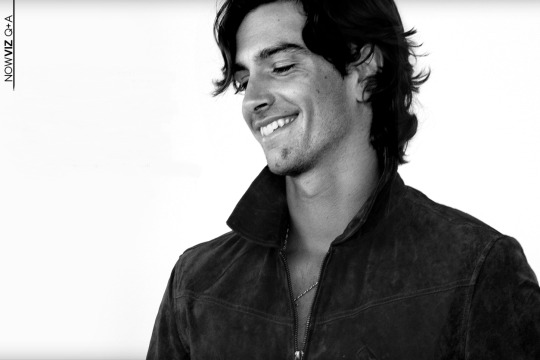







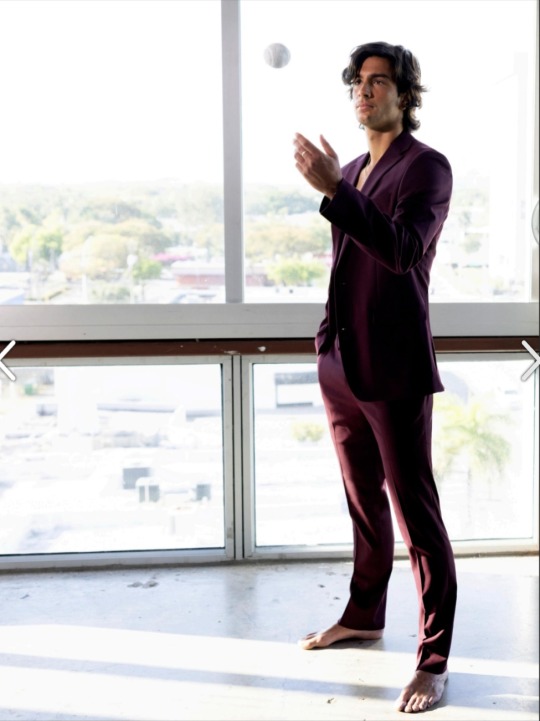

Often, it's a single moment in the course of your career, a moment that may be overlooked by onlookers, that makes you realize you're on the right road.
For Italian Tennis pro Lorenzo Musetti, that came after a five-set loss to former world No. 1 Novak Djokovic at the 2021 French Open. The then 19-year-old Musetti took the first two sets against the Serbian maestro in what was his Grand Slam debut.
"It was a fantastic experience. I was playing my best tennis, for sure," the young player who ranked 76th at the time later told the press, adding, "Now I know how I can play, how far I am from the biggest in the tour, like Nole, so I know that if I play good I can stay at this level."
It was a moment of clarity for Musetti that propelled the player to become one of ltaly's top three tennis players less than two years later. But though he claimed his highest ATP ranking ranking of World No. 15 on 26 June 2023, the road to sporting success had been a long time coming for the Italian star.
Musetti, who was born in Carrara, Tuscany, in Northern ltaly, on 3 March 2002, began playing tennis at the incredibly young age of four. When it quickly became obvious that he had a gift for the game, his father, Francesco, a marble producer, and his mother, Sabrina, a secretary in a local Tuscan company, didn't hesitate to support their only child's tennis dreams.
At the age of 10, Musetti was taken under the wing of tennis coach, Simone Tartarini, who has remained the Italian champ's coach to this day. A regimented training routine and the tight circle of supportive family and friends around him were instrumental in keeping Musetti focused during his teen years as he evolved into a strong junior player.
Between 2016 and 2019, the young Italian won seven singles titles, reaching his peak as the winner of the 2019 Australian Open boys' singles and ranking junior world No. 1 that same year.
2019 was also the year that the star player turned pro. Receiving a wildcard and passing the qualifiers, 17-year-old Musetti made his ATP Tour debut at the Dubai Tennis Championships in February 2020.
In 2021, he reached the semifinals of the ATP Tour 500 Mexican Open where he had his first top-10 win, beating world no. 9 Diego Schwartzman in three sets. Later, he played in the Lyon Open and the French Open, and finished the season with the Next Generation ATP Finals.
In 2022, the determined tennis dynamo scored 44 wins from 74 matches. He scooped winning titles at the Napoli Tennis Cup and the Hamburg European Open, where he beat current Wimbledon winner Carlos Alcaraz. Reaching the quarterfinals of the Paris Masters 1000 Musetti faced-off with Novak Djokovic once again and took another loss against the tennis superstar.
That would change in 2023. In a three-set thriller against Djokovic at the Monte Carlo Masters in April 2023, Musetti finally defeated the former world No. 1 and reached the championship's quarter finals.
"I am really proud of myself," the ltalian player told the media in his on-court victory interview afterwards. "I am struggling not to cry because it is a dream..."
And though he added, "Beating Novak is something remarkable for me," perhaps, beating Djokovic was also an inevitable step on the road to tennis greatness that only a few years ago Musetti had realized was the actual road he was on.
Lorenzo has the phrase, 'Il meglio deve ancora venire' tattooed on the side of his chest. Translated in English as, 'The Best is Yet to Come' inspired by a song from Ligabue.
You've been on fire this 2023 season making your top 20 ranking debut with a career-high singles ATP ranking world No.15!
At this year's Monte-Carlo Master's you upset world No. 1 and top seed Novak Djokovic to reach your second Master's quarterfinal. Then you went to the fourth round at the French Open, and the third round at Wimbledon! Will you talk about some of your best moments?
@lore_musetti: "My best moment in this season so far was when I had the chance to beat Nole. I was living a dream for sure! It was the best win in my career and something that I won't forget!"
@djokernole praise on Musetti's game at 2021 Roland Garros: "I really like how he plays. He's got a lot of firepower from both forehand and backhand. He can play with a lot of spin. He's got a great feel, come to the net. He can play short balls and dropshots. He can flatten out his serve. He can open up with a good kick and slice. He's got an all-around game."
You've been coached by Simone Tartarini since the beginning of your career. What is it that makes him a great coach for you?
"Simone is more than a coach; for me, he is like a parent. We have shared a lot of memories and experiences during our relationship and he definitely knows what I need to do the most."
Every top athlete seems to have or has had a mentor, friend, or someone in their corner to offer guidance. We wonder if you do and, if so, how have they helped?
"I think my family is the best support system I could ever dream of. They are always there for me and they are always supporting me."
What motivates and inspires you daily?
"My daily motivation is to get better every day so that I reach my goals!"
You travel extensively when on tour. So besides playing tennis, how do you stay physically fit?
"I train every day either in the gym or the track field. The fitness part is something really important in our sport, but training is also important for my health."
As a top player how do you stay in control of your game mentally?
"I work daily with a psychologist; the mental side is equally as important as the physical side in this sport. It is a long process to develop and takes time to be defined."
How do you fuel your body nutritionally throughout the season? Is there a specific diet or regime you follow?
"I try to stay as healthy as possible and follow a meal plan, especially during tournament week."
"Music is probably my biggest passion. I'm a huge fan of music in general and I listen to it a lot during the day - literally, every kind of music!"
"The top of one mountain is the bottom of the next. So keep climbing!"
-Lorenzo Musetti (do you remember when he wrote this...?🥺💪🏻🏔🤍)
Check out on their site: https://www.nowviz.com/
https://issuu.com/nowvizezine/docs/nowviz_019?fr=xKAE9_zU1NQ
Or on my ig page:
instagram
2 notes
·
View notes
Text
Carolina Garcia on top of the world
By Lucas Andrey
Caroline Garcia, who is imperial on serve, defeated Aryna Sabalenka (7-6 [4], 6-4) on Monday night in Fort Worth to win the WTA Masters. She is the second Frenchwoman in history to achieve this performance, 17 years after Amélie Mauresmo.
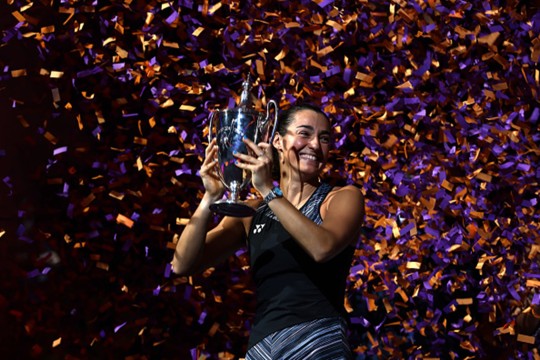
Copyrights : Getty Images
It was an early morning for the spectators to see "Caro" Garcia rule the court, allowing her to win the most beautiful title of her career and the final tournament of the season, which brings together the eight best players of the year. The two players known for their attacking profile offered us a first set of great intensity. Both the Frenchwoman and the Belarusian player, solid on their service game, did not concede any break points. A set that went to a tie-break, the Belarusian cracked under pressure, committed two double-faults, and the Frenchwoman took the first set.
As soon as the second set began, Caroline Garcia had two break points which she converted. As imperious as ever on serve, she maintained her lead. At the moment of conclusion, at 5-4 on her serve, the Lyon native did not crack under the pressure. A first match point is saved by Aryna Sabalenka, but the second is the right one, on a forehand error by the Belarusian. The Frenchwoman collapses, hands on her face. She can savour it, she wins her 11th career title, including 4 this season, and this one is undoubtedly the most beautiful and allows herto leave her mark on tennis and the French sport a little more.

Copyrights : Getty Images
Work and self-sacrifice: the resilience of a champion
At the age of 29, she is now on top of the world. A consecration that was promised much earlier, at the age of 17, in 2011 when she held off the world number one Maria Sharapova in the second round of the French Open. A promising start to her career, until she reached 4th place in the WTA rankings in 2018... then the decline, several years of doubt, between tennis in perdition, crisis of confidence and recurring physical problems, the Frenchwoman had plummeted to 74th place in the world by the end of 2021.
It was time for a reaction. At the end of 2021, Caroline Garcia changed coaches. A game based on attack which is her main quality. A newfound confidence and the Caro Garcia sauce finally takes with a victory in doubles at Roland Garros with her compatriot Kristina Mladenovic. Followed by 36 wins for 9 losses, since mid-June, titles in Bad Homburg and Warsaw, a title in the M1000 in Cincinnati, a Grand Slam semi-final at the US Open, and this title at the WTA Masters to finish in apotheosis this year 2022 which will have been the one of resilience for the Frenchwoman. This victory allows her to equal her best ranking, 4th in 2018.

Copyrights: commons.wikimedia.org
In Fort Worth, "Flying Caro" took flight, at 29 years old has she reached the age of maturity? This suggests an even better year in 2023, she could fly even higher to reach the top with her sights set on a Grand Slam title and a world number one ranking.
10 notes
·
View notes
Photo

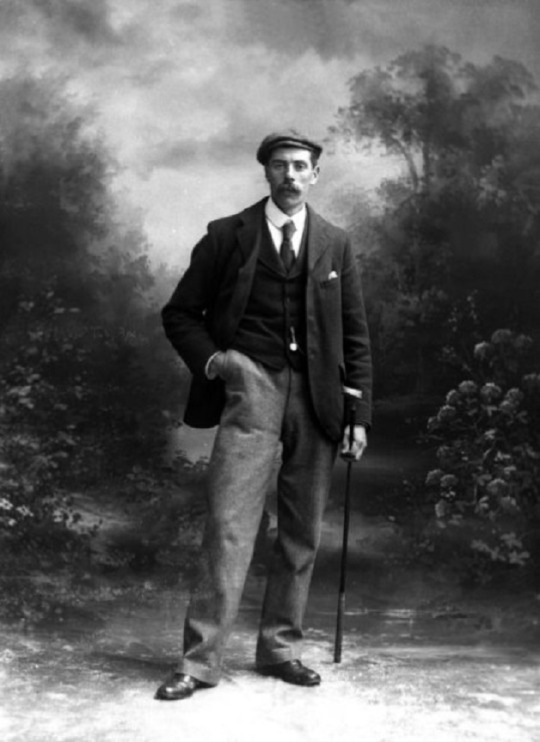
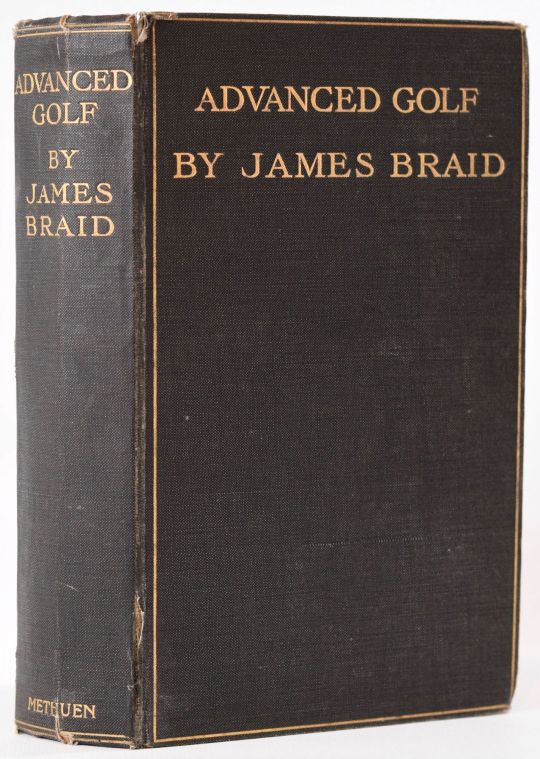
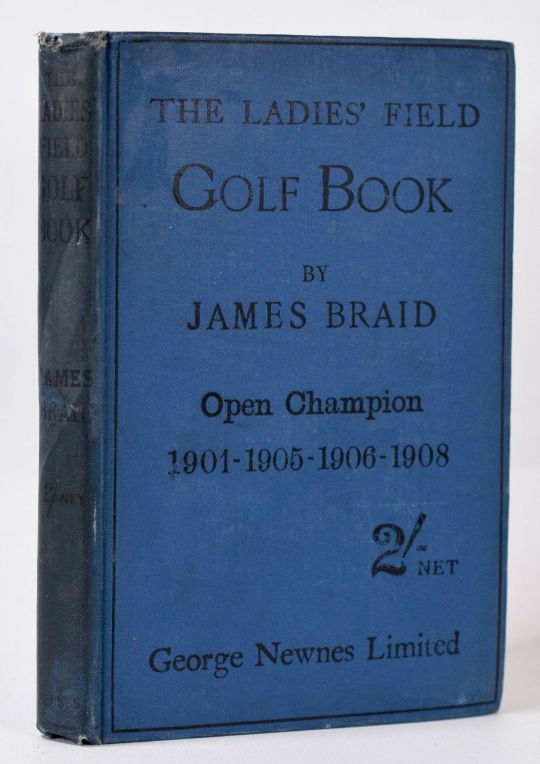
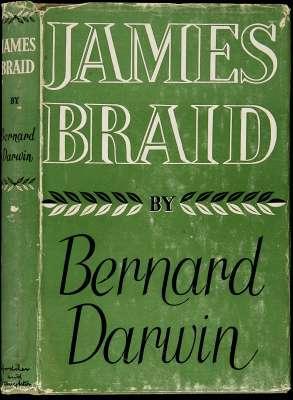




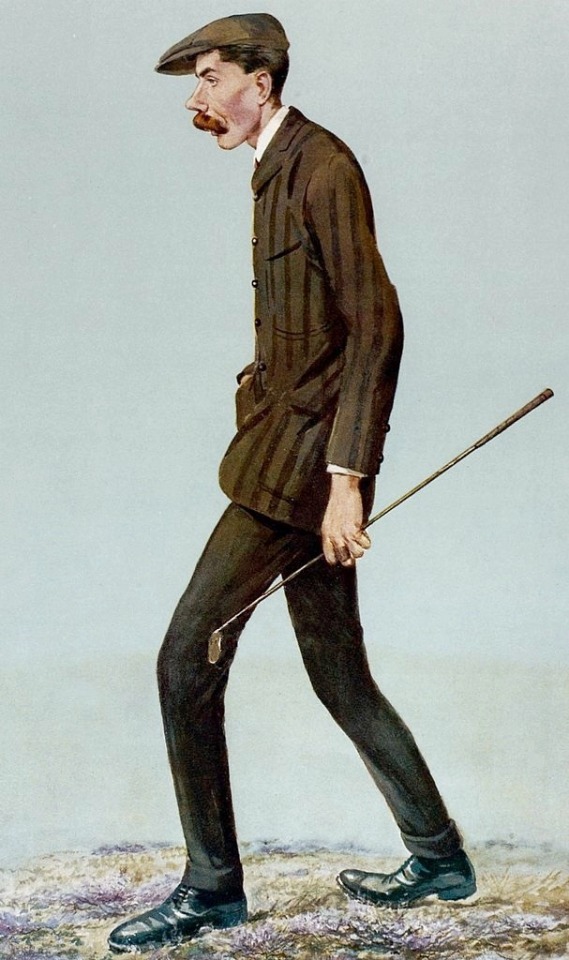
27th November 1950 saw the death of the professional golfer and golf course designer James Braid.
Born at Earlsferry in the Kingdom of Fife James Braid took up golf at an early age and played on the lovely links at Elie.
A carpenter by trade, Braid turned his skilled hands to making and repairing clubs before leaving Scotland to begin club-making at a store in London. Seizing every spare moment to play the game he loved, he steadily improved and, when 26, accepted a job as the professional at Romford Golf Club on the outskirts of London.
As a golfer e won The Open Championship in 1901, 1905, 1906, 1908 and 1910. In addition, Braid won four British PGA Matchplay Championships (1903, 1905, 1907 and 1911), as well as the 1910 French Open title. He was also runner-up in The Open Championship in 1897, 1902, 1904, and 1909. His 1906 victory in The Open Championship was the last successful defence of the title by a European until Pádraig Harrington replicated the feat in 2008. As well as the five Open wins he finished in the top five a further 11 times!
He also founded the Professional Golfers' Association and, in the midst of all his success, moved to Walton Heath, a new course to the south of London, where he remained the pro for more than 40 years until his death in 1950.
While at Walton Heath, Braid found time to both write about golf and design or improve more than 200 courses throughout the U.K. Some such as Gleneagles, Carnoustie, Southport and Ainsdale, Boat of Garten and St. Enodoc are rightly famous, while others such as Aberdovey, Berkhamsted, North Hants and Goodwood are perhaps less well known, but still enjoyed nowadays by exponents of the sport.
As well as playing golf and designing courses James Braid also found time to write about it, he first articulated his philosophy in a book called "Advanced Golf," which was published in 1902. Two chapters are devoted to design and are quaintly entitled "The Planning of Course" and "The Character and Placing of Teeing Grounds, Bunkers and Putting Greens." Golf Guide, The Ladies Field Golf Book in 1908 and , How to Play Golf was in 1910. There is also a book about all the courses Braid designed as an architect titled "James Braid and his 400 courses."
Bernard Darwin’s biography James Braid was published in 1952. Darwin knew Braid for over fifty years and offers some keen insights into the man who is described as having “wisdom and a deep and essential kindness.” Regarding Braid’s ability to focus, Darwin describes him, “studying his putts as if the fate of empires depended on them,” even in casual rounds.
Braid disliked travel overseas, very rarely left the British Isles, and never traveled outside Europe, hence no American titles. But he did design two 18-hole golf courses for the Singapore Island Country Club in Asia, using topographic maps to plan his layouts there, which were then constructed to his orders.
Courses in the pics are, in order, The King's course,Gleneagles, Nairn Golf Club, Brora Golf Club, where you have some interesting hazards to play around! Championship course, Carnoustie Golf Links and Craigmillar Park Golf Club.
James Braid died on this day 1950 in Kensington and is buried at Saint Peter's Church Walton-on-the-Hill, England, he was 80 years old.
There’s a list of Braids courses in the UK on the link below, with the prices it costs to play each course, although they may have risen since then, they start at just £10 a round
https://lundinladiesgolfclub.co.uk/wp-content/uploads/sites/1497/2021/01/Association-of-James-Braid-Courses.pdf
8 notes
·
View notes
Note
Hi, how are you doing?? Hope you're alright wherever you are!
So, I was making some research about the marquis and I had 2 questions that poped up to my mind which I couldn't find the answear for online:
1. How many stories do we have Lafayette as a child still living at the Chavaniac. I've heard of the one where he once went looking for the beast of gévaudan, but if he had the guts to go after it so young, that mustn't be the only thing he did;
and 2. I've acidently came across three quotes from the book "The Woman of the Chatêau Lafayette" and, while they sound amazing, I doubt it's veracity, for as the saying goes "if something sounds too good to be true, the it probably isn't."
This first quote, Adrienne was supposed to be hosting a bishop or something but she refused to go, and feeling bad that she might've disapointed her husband, she went to try to apologize bur heard Lafayette saying
"Sir," Lafayette began, "I do not share my wife’s religious beliefs, but if you knew my marriage, you would realize that she is not my subject , nor would I wish her to be. She is a woman of high-minded principle and the model of kindness; of a character we would all do well to emulate. I would no more crush my wife’s spirit than I would persecute any other citizen for matters of conscience. And I promise that if you try to crush her spirit, you will find me in your way, sword in hand."
this other one isn't much of a quote but, more like a moment, it is during the beggining of the french revolution, and he and the duc d'Orlean if I remember correctly are discussing, and Lafayette threatens him (?) to leave to Englad and to not be back.
The third one is, at the National Assembly, he says some controversial stuff and, to punish him, they took off some titles from his name, and he signed his name on the last record of the session without any noble title or military rank at all, just Lafayette.
Again, I have no idea if any of this us true, and I'm sorry for basically just using you to fact check some stuff since my searching habilities are basically zero lol, but thank you very much =))
p.s. here talking about the frev, how the americans viewed lafayette's role in it? and how did his friends did?
Hello Anon,
that are a lot of questions, so let us try to tackle them one by one, shall we? ;-)
1. Childhood Stories
No, sadly I do not know a lot of childhood stories. La Fayette did not reference his childhood often in his own writings and this time in his life appears to not have been remarkable. He was a young Marquis from a mediocre family at the time. His wealth was also greatly limited at that time because he inherited most of his money from his maternal-grandfather and he was still alive at that point in time. The Auvergne was far away from the bustling cities like Paris or the court in Versailles. La Fayette grew up in the countryside with his grandmother (a very remarkable women in her own right), his two aunts and a cousin. His childhood was by all accounts a very happy one, but a mostly uneventful one - or the stories were not preserved. The earliest stories I know about start when La Fayette entered the schools of Paris at around twelve years of age.
2. The Bishop of Paris
This incident as depicted in the book (Stepahnie Dray, The Women of Chateau Lafayette, Penguin LCC US, New York, 2021, p. 320-321.) is for the most part factual and happened that way. A little bit of background for everybody who has not read the book and/or is not familiar with this aspect of revolutionary France: the clergy was ordered to swear the oath of the Civil Constitution of the Clergy (January 3, 1791) - some clergymen took the oath, some refused and some even fled the country. Adrienne was absolutely against the idea that a priest should swear this civic oath - and she was quite open about this. The Archbishop of Paris, Antoine-Elénore-Léon Le Clerc de Juigné, who had sworn the civic oath as well, left France in 1790 because he became alarmed by the turn the Revolution had taken. In his place Jean-Baptiste-Joseph-Gobel became Archbishop of Paris. Now, Gobel was never recognized by the pope, he was described by some of his contemporaries as an atheist and he was opposed to some of the pillars of the roman-catholic believe - in short, he was no one with whom devout Adrienne would ever get along. Here is what Adrienne’s daughter Virginie wrote in her book:
My father often received constitutional clergymen at dinner. On those occasions, my mother would express before them her attachment to the cause of the former bishops. She would discuss her opinion with those whose personal character she esteemed, and in these conversations she manifested such enlightened views, gave proofs of so much sincerity, and was, at the same time, so careful of offending, that no one could be wounded by the expression of her feelings. Independently of their conduct or opinions, all were received by her according to my father’s wishes, without her own consideration being diminished, because she preserved on every subject the liberty of expressing her way of thinking. Once only did she depart from the rule she had laid down for herself, that of receiving all sorts of persons equally well; it was the day when the bishop of Paris, after his instalment, came to dine at my father’s. He did not, like his colleagues, come as a private individual and she declined receiving him as bishop of the diocese. Accordingly, she dined out that day, although her doing so was much remarked.
I purposefully included a longer passage, to give you an understanding of the general scene at the time. We see that the events, the dinner, Adrienne being absent, happened just as described in the book. Do we know if La Fayette and Gobel had a conversation? No. But given the general stir that Adrienne’s absent caused, we can be quite sure that a conversation of some sort took place. You can say a lot about La Fayette as a husband but in his very own way he was very loyal to Adrienne and he would have never chosen Gobel over her (since he also did not appear to be terrible pleased with Gobel himself.) Where either he or Gobel that direct and harsh in their wording? We do not know, maybe not. I am certain though that La Fayette defended Adrienne’s actions in front of Gobel or anybody else.
3. The Duc d’Orléons
La Fayette and Louis Philippe II, Duke of Orléans had a disastrous relationship on good days and an even worse one on bad days. (What is somewhat ironic since he basically made d’Orléans son king - but the relationship between La Fayette and Phillipe I soured soon as well. Like father like son. :-)) Here is the quote from the book you were referring to (at least I hope I’ve got the right one :-.)
Philippe lifted his chin. “What do you want, General Redhead?”
“To warn that Paris is no longer safe for you.”
Philippe laughed. “I am safer in Paris than you.”
More than fifteen years of enmity between the two men had finally brought them to this reckoning, and I saw murder in my husband’s eyes. “Understand, sir, that you are not safe anywhere I am.”
Philippe stopped laughing. “You are threatening me.”
Lafayette’s expression was cold, like frigid mountain air. “My wife tells me you have friends in England. Visit them.”
Philippe was not accustomed to taking orders. “Or what?”
In answer, Lafayette put his hand upon the pommel of his sword. The one carved with his great deeds in America. And I realized there might very well be bloodshed in my parlor. Philippe must have realized it too. He glanced at me, but I kept my eyes hard.
For once in his life, Philippe gauged us properly. “I will apply for a passport.”
My husband nodded. “It will be granted.”
Stepahnie Dray, The Women of Chateau Lafayette, Penguin LCC US, New York, 2021, p. 292-293.
Now, I do not know of any such particular stand-off between the two of them, but there really was no love left. Was La Fayette that direct in his manners with d’Orléans? I personally doubt it and would think he had himself more under control (he certainly would not have murdered d’Orléans and even less so in his own parlour with his wife present and his children maybe upstairs) but La Fayette, when under pressure, could also sometimes be very rash. Just like with the last question; the general scenario is correct but we will never know the exact details.
4. La Fayette and his titles
Sooo, I think and hope that your last quote was in reference to this scene from the book:
So Gilbert set aside his poultices. He caught his breath. He returned to Versailles. And there, he rose in the assembly to rain down thunder. He protested corruption and wasteful spending. He supported reforms in the judicial system to prevent torture and unjust convictions. And perhaps most controversial of all, he argued for a motion to grant civil rights to Protestants and Jews.
Gilbert rose again and again, like a colossus.
To punish him, the royals divested him of his rank as field marshal. And in response, he defiantly signed his name on the last record of the session without any noble title or military rank at all.
Lafayette.
The name we shared.
A name that would, henceforth, speak for itself.
Stepahnie Dray, The Women of Chateau Lafayette, Penguin LCC US, New York, 2021, p. 248.
While La Fayette knew and was friends with many like-minded nobles (they even called themselves the “Fayettists”) and there were still members of the nobility who were way more progressive and sympathetic towards the Revolution than La Fayette was, his relationship with the royals was often taunt and marked by mutual mistrust. The abolishing of titles was a notion introduced by a relative of La Fayette’s and he supported the idea wholeheartedly - what really makes me stumble is the passage where La Fayette was supposedly stripped of his rank as a field-marshal. I am not as firm with La Fayette’s military titles as I should be but I really do not know when that should have taken place. La Fayette entered the Revolution as a Maréchal de Camp and he was promoted to Lieutenant Général on June 30, 1791. This timeline intrigues me and will look that up and make a separate post about his ranks and how he got or lost them. Until then, please be patient with me. :-)
Maybe as a closing though - the name La Fayette did indeed came to speak for itself, without the need of military or noble titles.
You also asked about the perception different people had about La Fayette’s role during the French Revolution - since that is such a lengthy and complex topic on its own, I would like to make a separate and detailed post about that as well. I will put it on my list (and no worries, I take good care of my list. :-))
I hope that answered all your question thus far and I hope you have/had a lovely day!
#ask me anything#anon#marquis de lafayette#la fayette#french history#history#american history#french revolution#the women of chateau lafayette#stephanie dray#adrienne de lafayette#adrienne de noailles#virginie de lafayette#duc d'orléans#1791
11 notes
·
View notes
Photo

EVELYNE BROCHU back in Quebec for CHOUCHOU
✒️ Vincent Marcelin / La Presse
Evelyne Brochu is officially back in the country after living in France for several months. On the occasion of the shooting of Chouchou, a series expected on Novoo in the fall, the actress told La Presse about her joy to find the warm atmosphere of Quebec.
Evelyne Brochu is not the type to laze around. Earlier this year, while she was shooting the sequel to Paris Police 1900 in France, she was preparing the shooting of Chouchou, a series written by Simon Boulerice. “I’ve been doing the in and out since January," says the Quebec actress, who has been seen in Trop.
Her stay in Paris allowed her to open up to new perspectives. “When we travel, we try to break our reference points, to break the routine, to renew our view of the world,” she explains. “To learn, to be turned upside down, to experience something else and therefore be different, because we are in another context and that reveals something else about us.”
For this second season produced by Canal+, aptly titled Paris Police 1905, Evelyne Brochu reprised her role as Marguerite Steinheil, this courtesan reconverted to espionage during what is known as the Belle Époque.
LIKE A RETURN TO THE ROOTS
After this new experience abroad, returning to Quebec was an obvious choice for Evelyne Brochu.
“There is a real pleasure in being in a kind of family feeling: the referents are common, the sense of humor is already embodied, because it is the same since our childhood.”
— Evelyne Brochu
Evelyne Brochu has therefore launched this new challenge, which she approached by a preparation provided before the shooting. “I still had a month here to make meetings, fittings. We had a lot of discussions, so we felt in familiar territory.”
In Chouchou, the actress plays Chanelle, a French teacher consumed by an illicit passion for one of her students. She shares the stage with a prestigious trio made up of Lévi Doré (Sandrick, the student in question), Steve Laplante (Jeff, Chanelle’s partner) and Sophie Cadieux (Sandrick’s mother).
The 39-year-old actress is pleased to have formed a bond of affection with the production team of Chouchou. “On set, there's a kind of familiarity, like when you go home and say, ‘This is our home.’” “Caring,” “tender” and “magical” are the three words she remembers to describe her co-workers.
A climate of trust that puts her in the best conditions for the rest of the shoot. "I feel so protected, welcomed and supported, I feel that we want to protect, love and cherish each other. It gives the feeling that everything is cushioned, that we just have to go for it," explains the actress.
A NECESSARY MATURITY
Directed by Marie-Claude Blouin and Félix Tétreault, the series written by Simon Boulerice tackles difficult themes such as adultery, poverty and drug addiction. “I think it was great that there was this sense of security and comfort, because there were going to be sensitive and uncomfortable things to talk about,” says Evelyne Brochu.
The role of Chanelle, which involves “challenges from an emotional and physical commitment standpoint,” led the actress to enter a phase of introspection.
“There are certain characters where it's best to get away from that. My big job for this role was to get as close to myself as possible. Of my fragility, of my vulnerability.”
— Evelyne Brochu
More than her sense of interpretation, her life experiences helped her embody her character. “Having more life experience sometimes prepares you for a role without having to intellectualize it. Evelyne Brochu cites the birth of her two twins in November 2021, which helped her better understand her character's fears about the consequences of her adultery.
“When Chanelle feels the danger of losing her family, it’s an emotion I can imagine,” she emphasizes. The 39-year-old actress is also looking forward to the projects that await her, especially in the cinema. She mentions a romantic comedy with a “cool American actor”, which will begin shooting in August.
“It’s very exciting. And I think it will be good to change universe after this great dive for Chouchou”, she concludes with a smile.
#evelyne brochu#Chouchou#chouchou series#simon boulerice#lévi doré#noovo#Orphan Black#cophine#delphine cormier#chanelle chouinard
14 notes
·
View notes
Text
Halloween for Adults
So, you're like me. You don't want Spooky Month to end just yet. Here's a few suggestions.
Full text below.
First, try digging out all those movies you keep telling yourself you'll watch, but never get around to doing so. Sprinkle them throughout November. My personal favourites are still Ryuhei Kitamura's adaptation of Clive Barker's Midnight Meat Train, along with Stuart Gordon's recent return to horror, in the form of 2021's The Color Out of Space. I'm a sucker for the golden oldies - put James Whale in the director's seat and I've watched it. Same goes with anything Ed Wood-related. I love my self-conscious schlock. An added mention goes to Tarantino and Rodriguez' Grindhouse collab, which has some fantastic gore.
You can also find yourself schlocky and pulpy books. I'd strongly recommend Andrew Pyper's Oracle, to put you in the mood. If you're into your classics, William Peter Blatty's The Exorcist is a hard one to beat. All respects to Bill Friedkin's work, but the novel is eons above it in terms of atmosphere. Note to the wise and to atheists out there, however - themes of guilt and of spiritual affects associated with said guilt are rampant in Blatty's post-Exorcist work in the same universe. If you're impatient in the face of someone waxing fire-and-brimstone as an excuse for their own moral failings, you might want to tune this one out. Barker features here, again, with his Books of Blood anthology being a favourite of mine. If you're looking for something that's hilariously campy and has the subtlety of a battering ram, just pick up one of Del Rey's H.P. Lovecraft compilations; they're far cheaper than academic editions, Miskatonic Press reprints or the Library of America omnibus.
For a more serious take on Cosmic Horror, I'll point you to Jeff Van Der Meer, whose Southern Reach series actually does wax existential, in opposition to Lovecraft's sometimes smarmy self-reflections. Van Der Meer does a great job at distilling Cosmic Horror down to its fundaments, and then builds his own Mythos, of a sort, on top of it. If the Master of Providence were still alive, I'd tell him to take notes - seriously.
As you'd expect, comics can also feature. Robert Kirkman's The Walking Dead deserve no introduction, but his tone is so focused on the interpersonal that any fun gets quickly sapped out of the experience. If you want some drama to extend your Halloween, you can't go wrong with Rick Grimes' adventures. If, however, you're here for the Pulpy goodness of it all, I'd suggest Mike Mignola and Pat McEown's Champion of the Worms. It serves as the opening salvo for an abortive project titled ZombieWorld - basically The Walking Dead with more squick and less pathos - but what is there is absolutely striking.
Simply put, Champion of the Worms is what you get when an American illustrator overdoses on the works of European pencillers like Morris or Hergé, and pens a gruesomely clean Clear Line-esque aesthetic that flatters the withered features of a Hyperborean death priest-turned-mummy called Azzul Gotha, who seems hell-bent on bringing about the Terrestrial reign of his worm gods and the spreading of a plague of undeath. There's something amusing to the sight of a stylistic cousin to Tintin's Rascar Capac (see The 7 Crystal Balls) pacing about in a museum he's overrun with zombies, reanimated mummies and other shambling corpses, muttering as he obsesses over a means to bring his chosen bride back to him. Man's got the face of the Cryptkeeper and probably a close proxy for John Kassir's cackles, and McEown still draws little pink hearts around his dessicated head when he finally manages to land what's probably the grossest French kiss imaginable.
It's horror in the way haunted house attractions typically present it - it's actually quite colorful and vibrant, and it's hard to find zombies that both manage to fit the bill while also seemingly disturbingly, even cartoonishly alive. It's funny and hammy and tragic in equal parts - and a real shame that Mignola and Dark Horse found the Sales figures disappointing.
Speaking of the Cryptkeeper, both the main Tales from the Crypt series and Nelvana's Tales from the Cryptkeeper are both worthy tools to extend Spooky Month by a week or two. If you're familiar with William Gaines and his weird forays from Christian comics to twisted morality plays featuring lurid gore, the adaptations hardly need any introduction. Of note is the fact that HBO more or less used TftC as a free and open workshop for many actors who felt like trying their hand in the director's chair, and also featured many top-bill talents from the eighties and nineties. One episode in particular features an unreal Michael J. Fox cameo, and one storyline in the penultimate season was directed by Arnold Schwarzennegger. They even got him to reference Pumping Iron while lambasting the show's cadaverous host for having, well, the biceps of a half-dried mummy! Like Champion of the Worms, this is Halloween at its most campy, fun, unrestrained, and cheerfully graven.
A quick round-up of the honorable mentions that were skipped over precisely because of their ubiquity would have to include Henry Selick's The Nightmare Before Christmas, Ray Bradbury's Something Wicked This Way Comes, Disney's Hocus Pocus and its recently-released sequel, along with Michael Dougherty's Trick R' Treat. Audiophiles see Midnight Syndicate's discography added to the pile.
For video games, I'll preface this by mentioning that a few of these picks suppose you're familiar with the handling of emulators, and that you can either work a Torrent tracker or source the needed files on your own.
If we're focusing on the fun side of things, Midway's CarnEvil is a favourite of mine, which runs easily on MAME with a few tweaks enabling you to use your mouse as a light gun analog. If you don't have the patience to get this fixed and money burning a hole in your pocket, you can snag a refurbed PSVR kit and give Until Dawn: Rush of Blood a whirl for the same basic effect. I'd also recommend an emulated cabinet of anything related to House of the Dead's arcade run. The Wii had its own off-kilter entry in the form of House of the Dead: Overkill, which ran hot off the tails of the then-recently-released Grindhouse duology. Creative Assembly's Alien Isolation deserves a special mention, along with EA Redwood Shores' Dead Space - particularly the first game in the series. Side note - the original 2009 release is a perfectly valid and cheaper alternative to the upcoming reboot.
Honestly, video games are the one area where I'm tempted to simply gesture broadly in the vague direction of your own, personal games collection and to just say Play the heck 'outta those you know. There's far too many to name, from anything that has Resident Evil's name or pedigree attached to it to super-niche titles like New Blood's Faith: The Unholy Trinity or Gloomwood. Indie horror games are extremely fertile, and not a week goes by where some other quirky goodie doesn't find its way to itch.io. Of them all, I'd particularly recommend Kitty Horrorshow's Anatomy, which is a moving - and gruesome - portrait of the Haunted House as a trope.
For other tone-setters, setting a good table always helps. These are the dying days of Summer, effectively, and nothing soothes more during the cold, damp days of November than a good bowl of soup. Onion soup layered with an au gratin biscotti is a House Gremlin staple from late September to shortly before Christmas, along with bog-standard non-perishables like pea soup. I also always keep a measure of crepe batter on hand, or at least have the essentials to whip one together on short notice. Once hailstorms become frequent, warm crepes with sausages, melted cheese or an abundance of maple syrup turn out to be useful and easy fixings to prepare.
Finally, keep a few spooky tidbits around. It's your house, your flat, your condo, whatever, so nobody gives a shit. Keep a few tiny pumpkin plushies, orange fairy lights or other reminders of the season that could more easily blend in with other décor elements. Seeing as you're prolonging Halloween, don't forget to sensibly stock up on either stock-clearance Halloween candy boxes, or on a handful of full-size options.
The fun honestly doesn't have to end just because everything media-based around you moved on to Christmas on the button, and for people like me who particularly resonate with certain holidays, it's prudent enough to give ourselves a week or two to safely come down from our favourite weeks in all the year...
6 notes
·
View notes
Text
2021-2022 Women in Translation Roundup Part 3: Travelling the (Queer) World
Continuing my goal of reading more writers from across the globe from more languages, in the last year I had the bonus of reviewing several books with LGBTQIA+ themes and/or characters including a few by queer writers. (Also see my Part 1 round-up this year for a few other such books from French.)
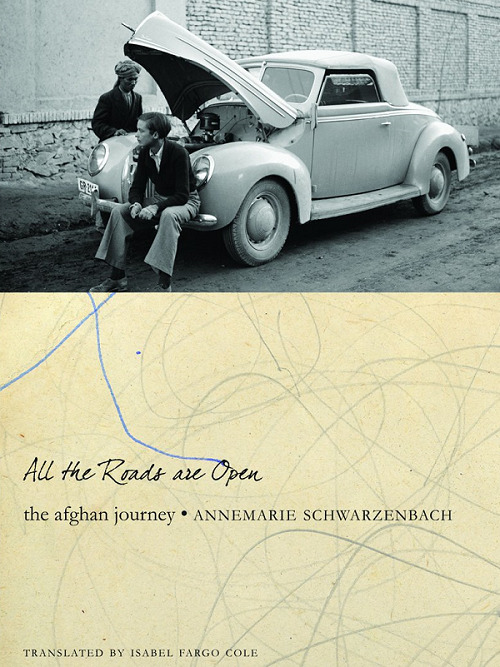
All the Roads are Open by Annemarie Schwarzenbach
The travelogue essay/memoir of a road trip to Afghanistan in 1939 by a Swiss heiress who has become a European cult figure.
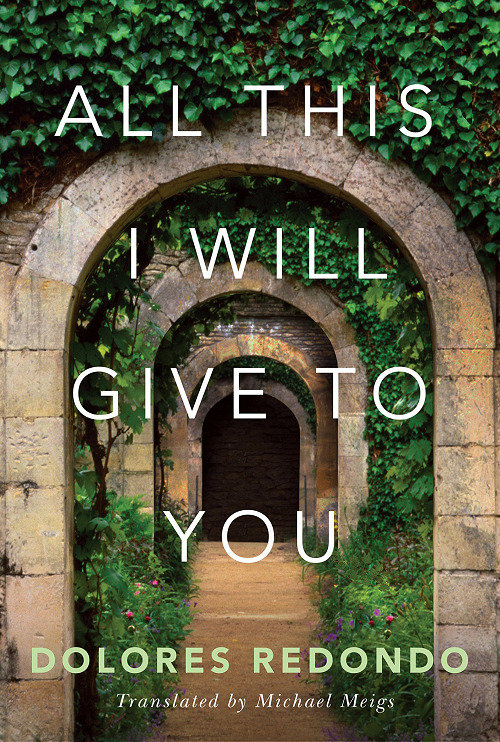
All This I Will Give to You by Dolores Redondo
From a popular Spanish writer this is another long chilling thriller, with a successful novelist trying to sort through his grief, anger, and questions after the sudden death of his husband when nearly everyone he meets in picturesque Galicia is hiding or lying about something.
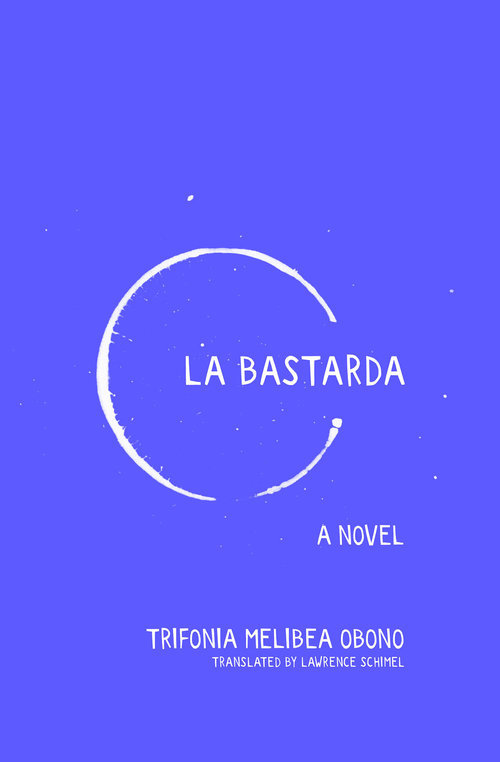
La Bastarda by Trifonia Melibea Obono
Bisexual feminist Trifonia Melibea Obono’s short YA novel is the first to appear in English translation by a woman from Equatoria Guinea.

Girls Lost by Jessica Schiefauer
A dark YA fairytale like book in a magical realism vein utilizing gender transformation whose original Swedish title translates to ‘The Boys’.
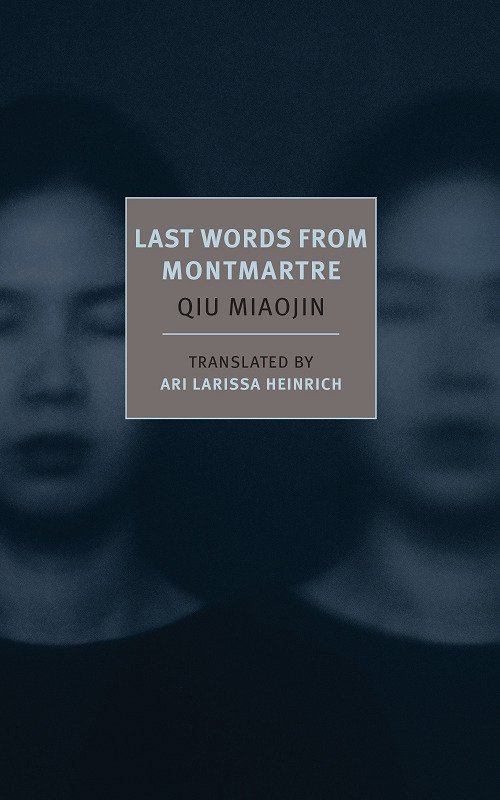
Last Words from Montmartre by Qiu Miaojin
A fiction book made up of a series of letters that can be read in any order by famous Taiwanese lesbian writer Qiu Miaojin and published posthumously after her own suicide.
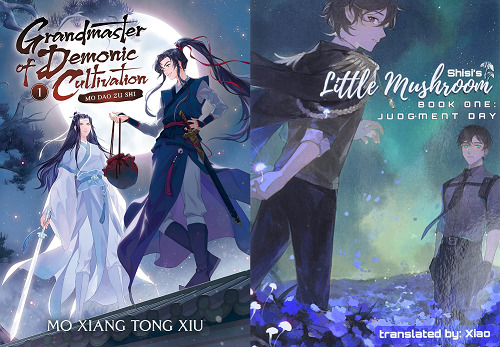
The last year has been particularly notable for Chinese danmei novels (m/m romantic or sexual fiction) appearing officially in English.
A huge global juggernaut spanning mediums the Grandmaster of Demonic Cultivation by MXTX is a supernatural fantasy series also in the xianxia (immortal heroes) genre.
Little Mushroom by Shisi is a dark dystopian sci-fi series following one xenogenic little mushroom who becomes a doppelganger of a human on a quest while humanity precariously hangs in the balance.

Paradise Rot by Jenny Hval
A bizarre and sensual eco-gothic debut novel where a biology student from Norway with an interest in mycology pursuing her education aboard encounters an unusual roommate.
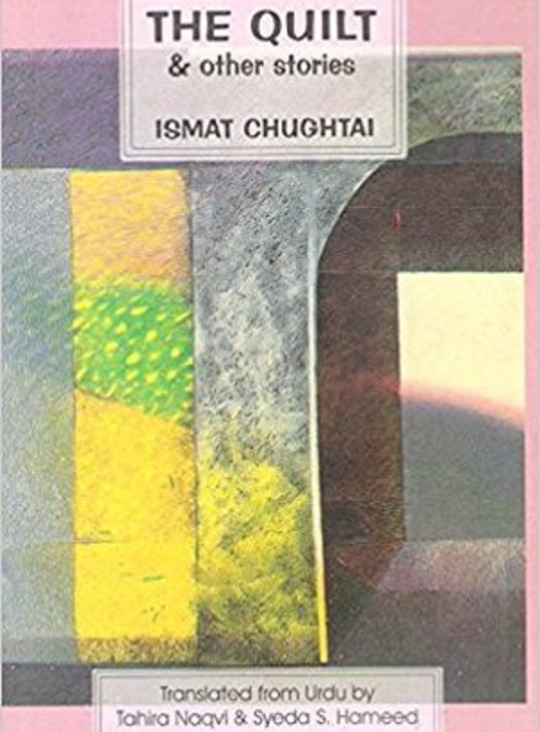
The Quilt and other stories by Ismat Chughtai
A story collection named from the (in)famous piece of the Indian Urdu novelist writing where she was faced with defending herself and her writing against obscenity charges.

The Wandering by Intan Paramaditha
An adult fiction choose-your-own-adventure type of book drawing on the Indonesian author’s ‘A Red Shoe Odyssey’ visual project. I ended up taking a sapphic route.
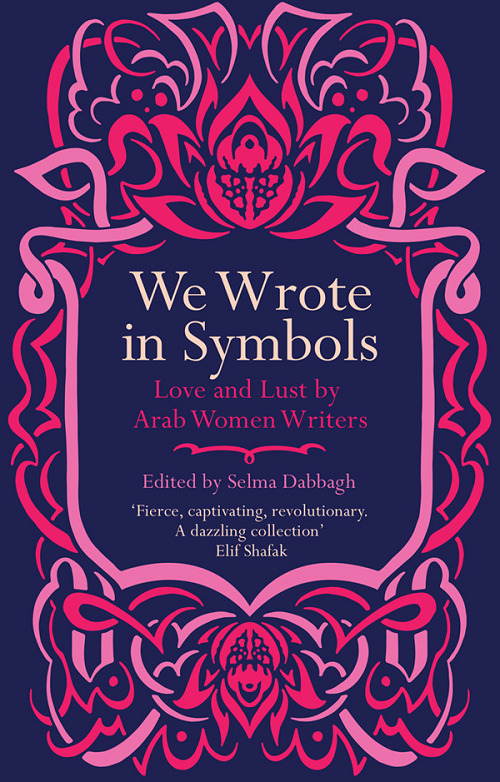
We Wrote in Symbols: Love and Lust by Arab Women Writers
Across millennia, lands, and language (writing from Arabic, English and French) the sensuous anthology displays the long history, depth, and varied expression of the erotic in writing by women (also one non-binary writer) of Arab heritage.
3 notes
·
View notes
Text
Top 10 Most Popular Muslim Soccer Players in 2022

Soccer is a truly global sport. Millions of young men and women play it on the grassroots level. And at the elite level by players who are household names.
People play it from almost every country in the world. In fact, most players in the English Premier League are foreign, playing for the top teams. Many soccer players have converted to Islam. Some have taken on Muslim names. And some are practicing Muslims while they play soccer at the same time.
Sometimes in the world of sports, one might come across a footballer from a different nation, with a different culture and religion, which can make it all look very natural. Muslim players have always been an essential part of the beautiful game.
Here’s a list of top Muslim soccer players who are practicing Islam and playing soccer professionally!
1. Mohamed Salah
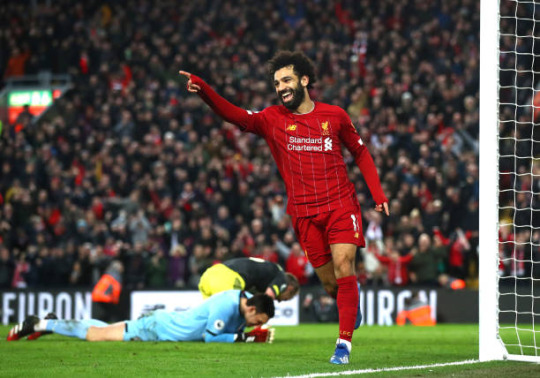
Liverpool and Egypt right-winger Mohammad Salah is one of the most famous Muslim soccer players globally. His soccer skills are as good as any player’s on the planet. And his goal celebrations are just as good as his soccer skills. A devout Muslim, he bows down to Allah after scoring a goal by planting his face into the ground, much like a Muslim praying. People call him “the Egyptian King” and “the new Messi”. It’s because of his good skills and ability to bring together fans of all faiths.
He was the star player on the Egyptian national team in 2018 when they qualified to play in the World Cup. He had been previously named Man of the Match three times during England’s 2017 FIFA Confederations Cup campaign.
2. Ngolo Kante
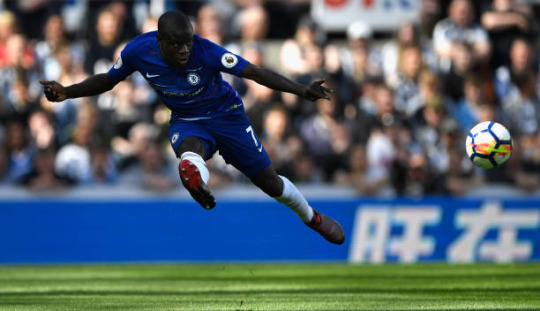
Ngolo Kante is one of soccer’s fastest-rising stars in the world, currently playing for Chelsea. His first major win was when Chelsea defeated Manchester City in 2021 to win the UEFA Champions League. He became the man of the match by having a stellar game, including a goal and a brilliant assist. This was Kante’s first season with Chelsea after moving from Leicester City, winning the Premier League in 2020. He has since become a key player for the team.
In addition to being a talented soccer player, Ngolo Kante is also a practicing Muslim. He prays at least five times each day, studies Arabic, and regularly gives to charity.
3. Riyad Mahrez

Manchester City’s midfielder Riyad Mahrez is one of the best Muslim soccer players in the world. He made his debut for the club in the opening day win against Arsenal.
Hailing from Sarcelles, France, Mahrez initially signed with Leicester City. He soon became a fan favorite for his hard-working style of play. And for taking on opponents with his speed on the ball.
He scored dozens of goals in his first season at Leicester, helping them win their first Premier League title. And nicknamed “the Algerian Jewel” after scoring a Premier League hat-trick.
Later, Mahrez moved to Manchester City for a whopping million dollars. He has scored many goals and contributed several assists since joining the team.
Mahrez’s biggest influence is former French international Zinedine Zidane, who he says played a big role in making him a great player. He also cites Cristiano Ronaldo as one of his idols, saying that Ronaldo’s professionalism on and off the field has inspired him.
4. Paul Pogba

The Frenchman has been a revelation since joining Manchester United. He is one of the most popular Muslim footballers on the planet. He has been known to sport a number of styles for his hair, including cornrows and an undercut with a beard. In addition to his haircuts being legendary, Pogba’s goal celebrations are extremely creative, including the “dab” dance and other choreographed moves.
Paul Pogba cemented his position as one of the best players in Manchester United history. He achieved this feat by scoring on his debut and winning the FA Cup in his first season.
In addition, he has won both the Premier League and Champions League with Chelsea and Manchester United, respectively, which is something no other player has done in the history of either club. Paul Pogba also has very good soccer skills, which he puts on display with some amazing dribbling maneuvers every season.
The midfielder often draws inspiration from his Muslim faith for performances on the pitch. It has earned him a reputation for being one of the most respected players in world football.
5. Sadio Mane

Sadio Mane is a versatile attacker who combines fast pace and ruthless finishing. Born into a Muslim family in Senegal, he grew up playing soccer with his brothers and sisters on a small dirt field.
While still very young, scouts spotted him while playing in a local league in his hometown. He was then selected to play for the country’s best youth training program, which ended up sending him to Europe. He played his first professional game at just 16 years old. And, since then, has demonstrated his skill as an attacker in almost every league he has been in.
He is best known for his speed and ability to finish chances. But is also well-known for his strong work ethic, dedication to Islam’s sport, and love of Islam.
He has said that “Islam is a part of me” and that “being Muslim makes me better.” His fans have even created a song dedicated to him, which they sing when he scores for Liverpool. He often credits this support as part of what motivates him to play well. Fans across the world also love him for his good friend Mo Salah.
6. Ilkay Gundogan
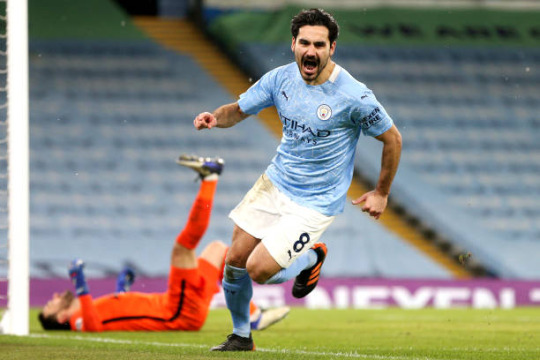
Ilkay Gundogan is a Muslim footballer who currently plays for Manchester City in the Premier League and the German football team. He is known for his versatility on the pitch, passing accuracy, and good soccer skills. Ilkay was born to Turkish parents in the city of Gelsenkirchen in 1990.
He is known as a hardworking player on the field. While off it, he has shown himself to be a devout Muslim. Gundogan has shared that he appreciates “the culture and history” of Islam. And he uses his platform to spread a message of tolerance for all people and religions alike. He has been noted as an outspoken critic of anti-Muslim discrimination, which he has called “unacceptable.”
7. Antonio Rudiger

Antonio Rudiger is a professional Muslim soccer player who is currently playing for Chelsea in the English Premier League. He is a versatile footballer. People know him for his fierce tackling, fast feet, and dominant aerial presence. Therefore, he has very good soccer skills and can be used in various positions, including center back, right back, and defensive midfielder.
Antonio was born to a Muslim family in Berlin. He began playing soccer at a young age and was exceptional at it. It wasn’t long until he caught the attention of many top-tier football clubs such as RB Leipzig, Borussia Dortmund, VfB Stuttgart, Bayer Leverkusen, and Chelsea, where he currently plays.
8. Saïd Benrahma

One of the most prominent Muslim soccer players in the world today is Saïd Benrahma. He plays for the Algerian national team and the West Ham United club in England. He was the third most expensive player in the history of Argentina. And the club considers him to be one of their greatest players and a key factor in their success.
Saïd Benrahma is known as “The Magician”. It’s because of his ability to unlock any defense with his incredible soccer skills. He has made a name for himself with his creative passing abilities and uncanny ability to fake out opponents. His goal celebration after he scores involves him saying “Allahu Akbar” or “God is Great” in Arabic. In addition to being a famous football player, Saïd Benrahma also loves being Muslim and often speaks about it.
9. Mesut Ozil

Mesut Ozil is a well-known German footballer of Turkish descent. He has the ability to captivate audiences with his impressive ball-handling skills. He has been active in the German football league system since 2009. And recently transferred to the Turkish Super Lig side Fenerbahce in a permanent transfer deal.
A devout Muslim, Ozil has demonstrated his commitment to Islam by incorporating Islamic teachings into his life as a practicing Muslim. He is very proud of his Muslim heritage. And he has never hidden his love for Islam, which he practices both by praying five times per day and eating halal food. He also enjoys reciting the Qur’an and quotes it regularly on his Twitter account.
10. Karim Benzema
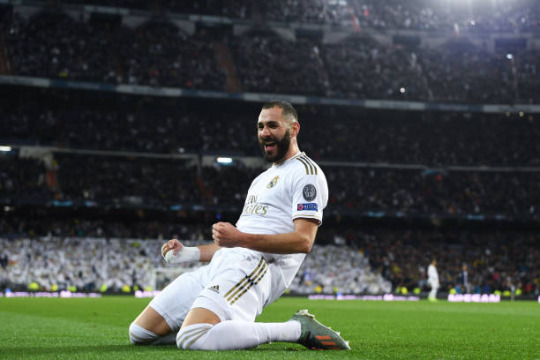
Karim Benzema is a famous Muslim soccer player. He plays for the Spanish club Real Madrid and the French national team. And he has competed in FIFA World Cups, UEFA European Championship, and UEFA Champions League finals. He is famous for his exceptional shooting skills.
When it comes to faith, Benzema is very open about being Muslim and his practices as a Muslim. In 2016, he made Hajj (pilgrimage) to Mecca with his family. The experience of meeting people from all over the world who share his faith and beliefs was a powerful experience for him. And it has helped him to become even more involved in the Islamic community.
He also loves Islamic teachings, including those about fasting during Ramadan. In fact, he played several games during this month while observing Ramadan fasts.
Conclusion:
This article references all Muslim soccer players who have achieved fame in the sport despite facing adversity for their religious beliefs. It also encourages young Muslims to pursue their dreams, even when doing so seems impossible.
Is there a famous Muslim football player that we forgot to mention? Let us know so we can add them to our top 10 list!
2 notes
·
View notes